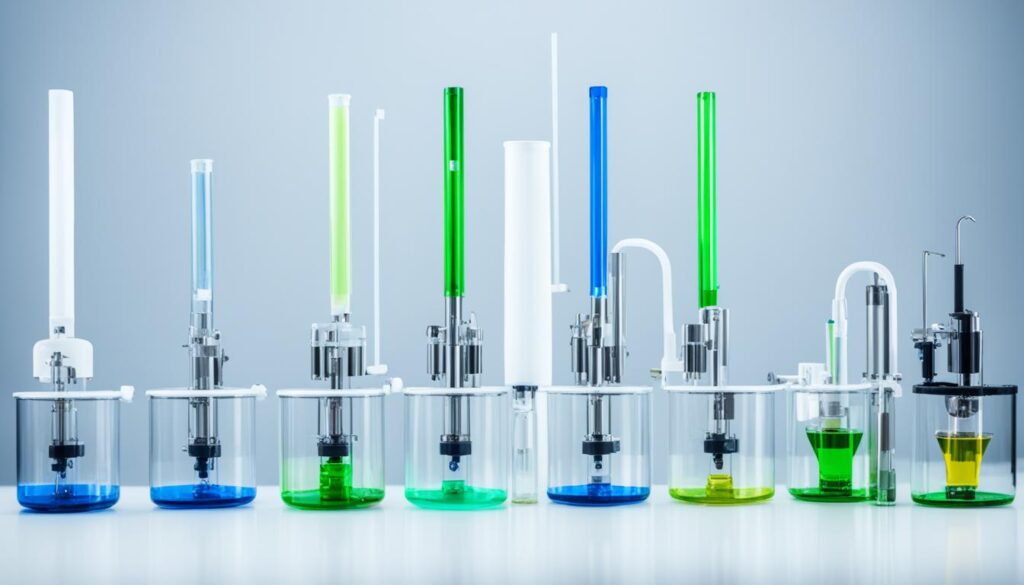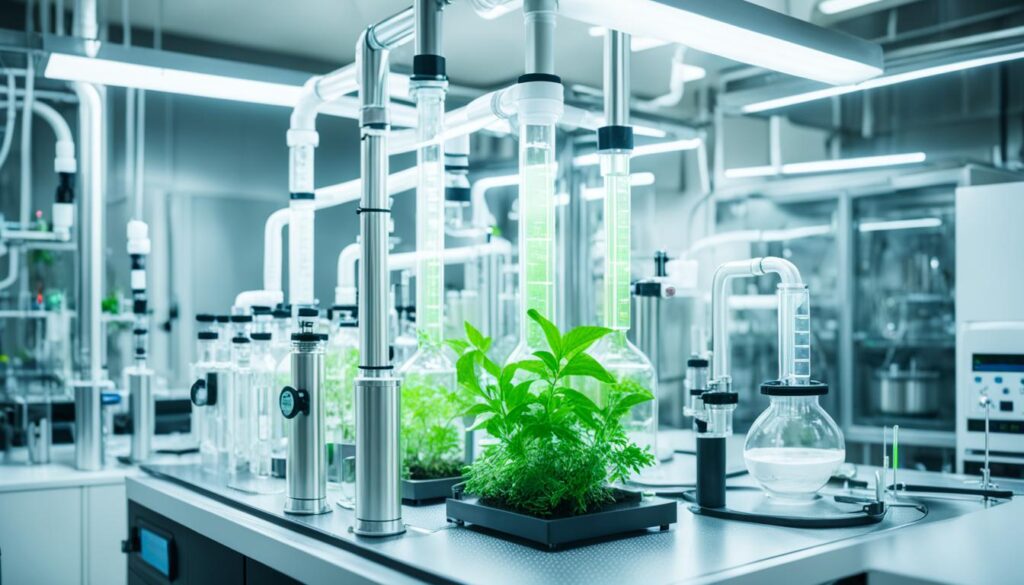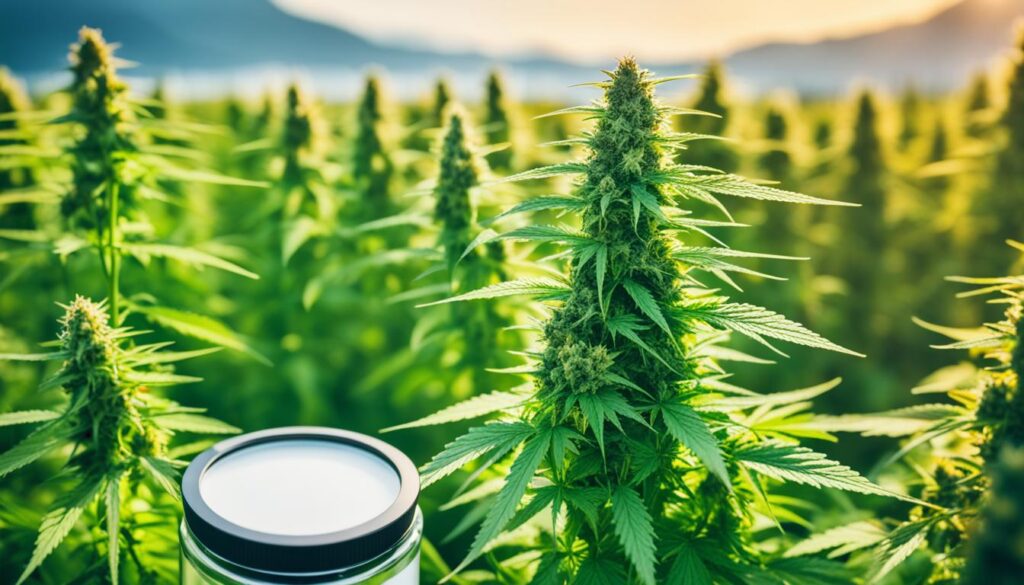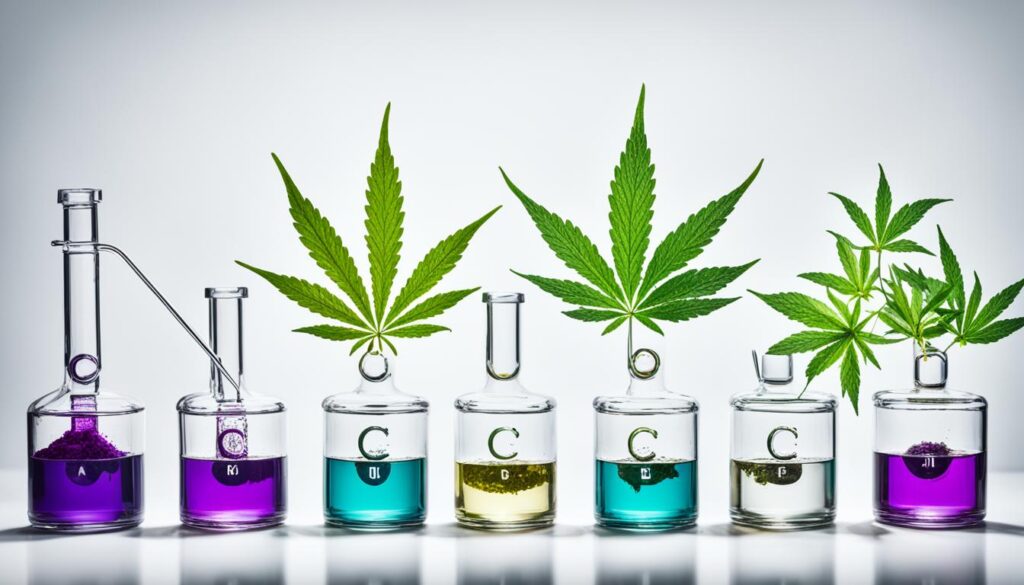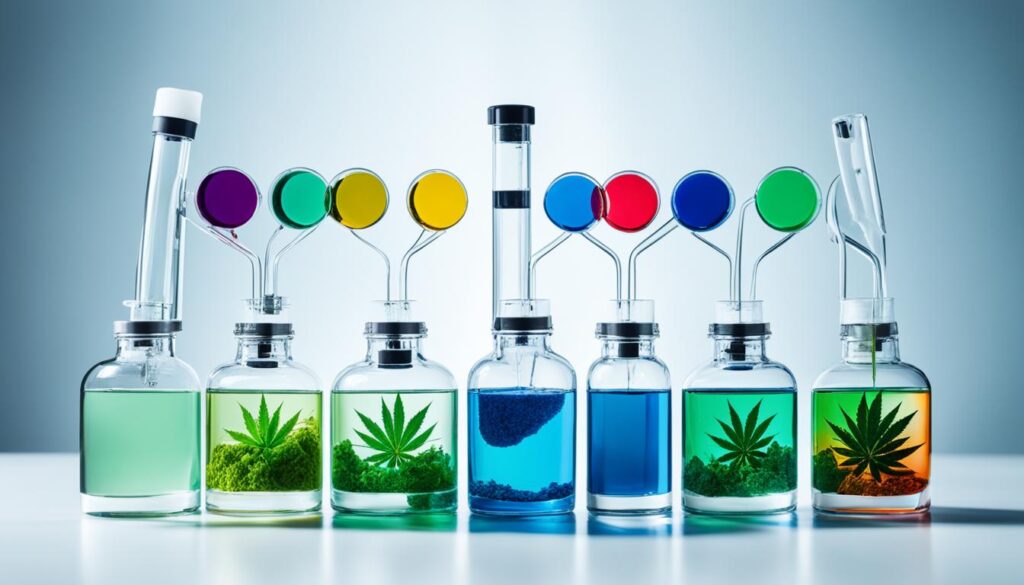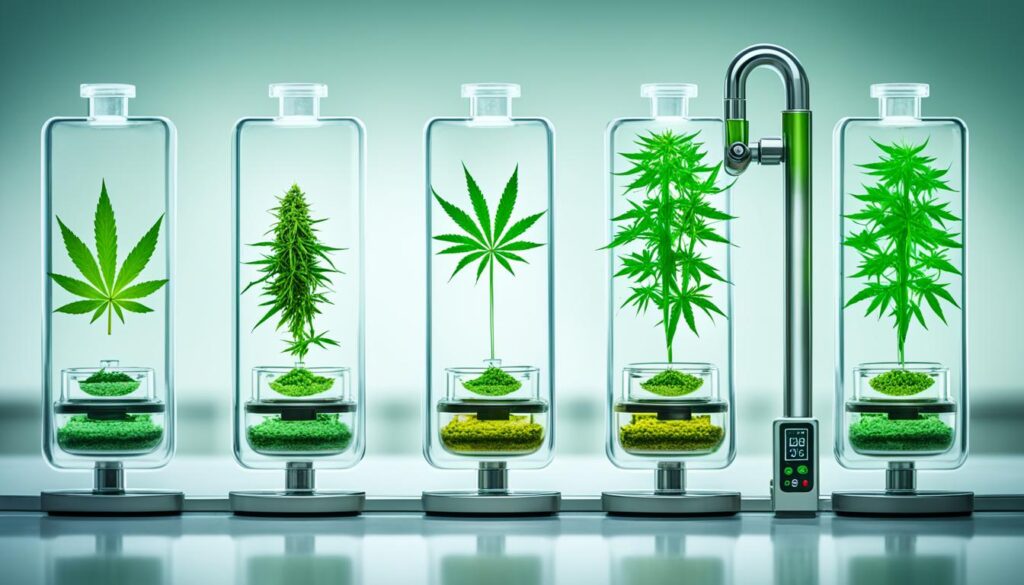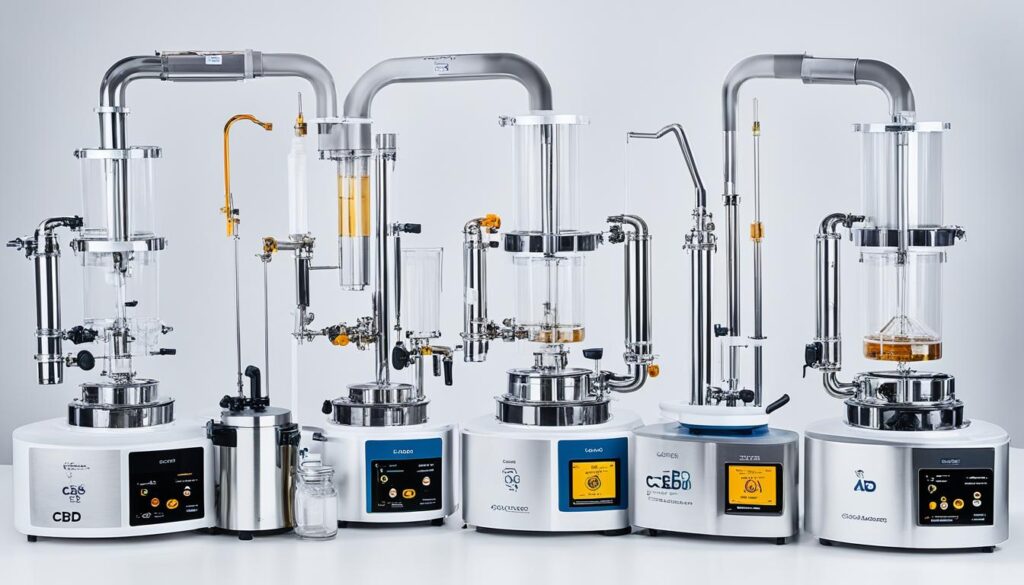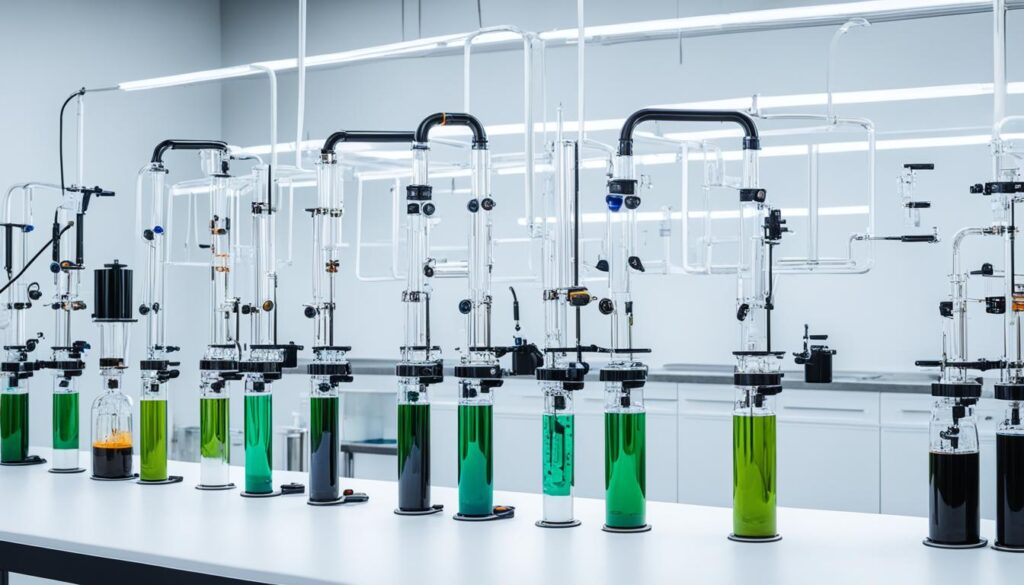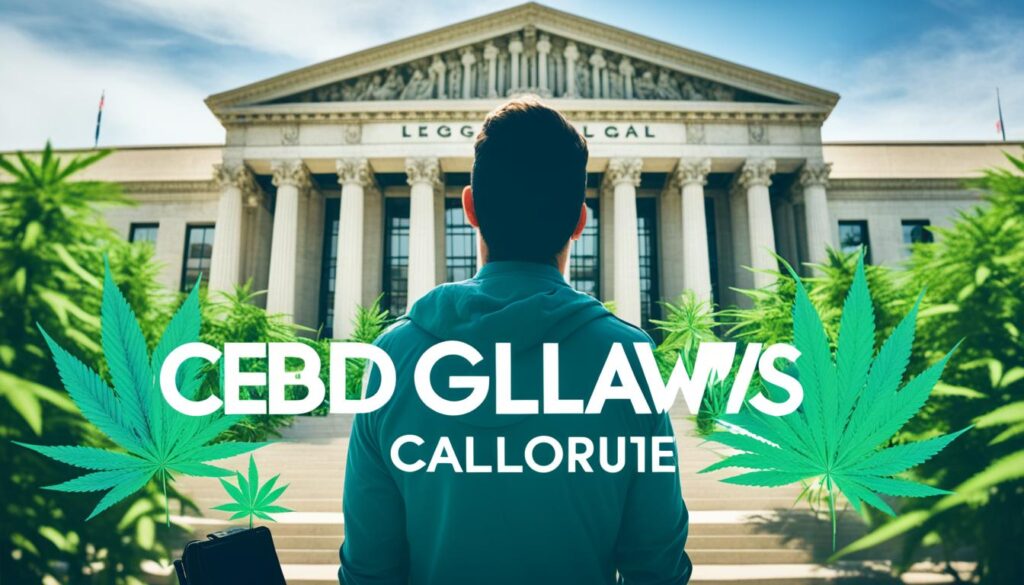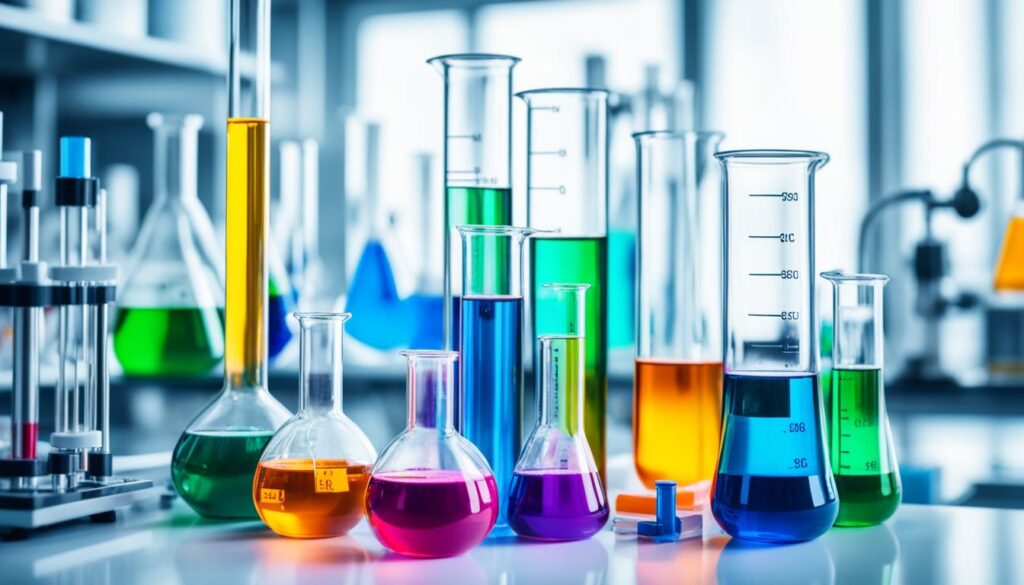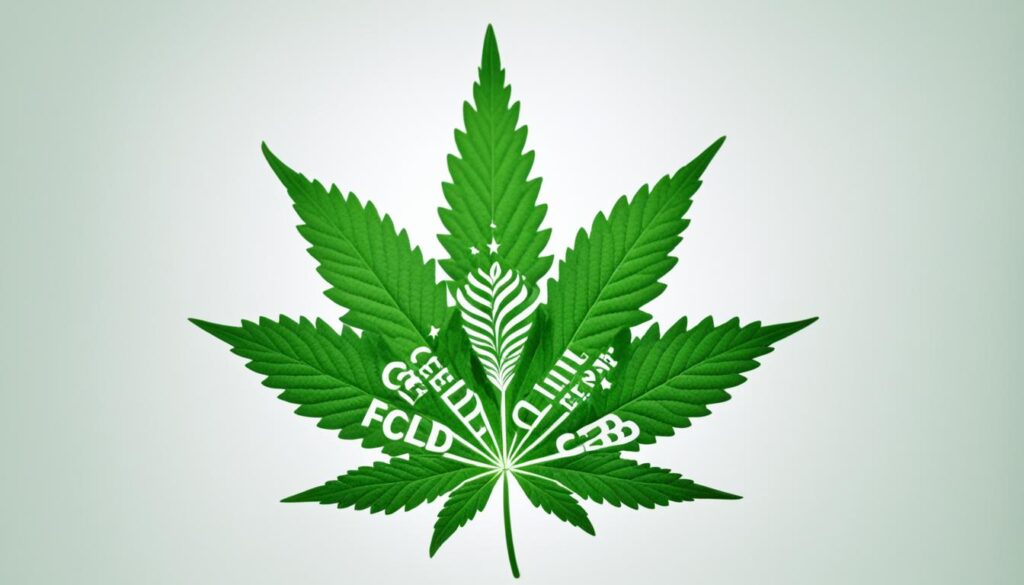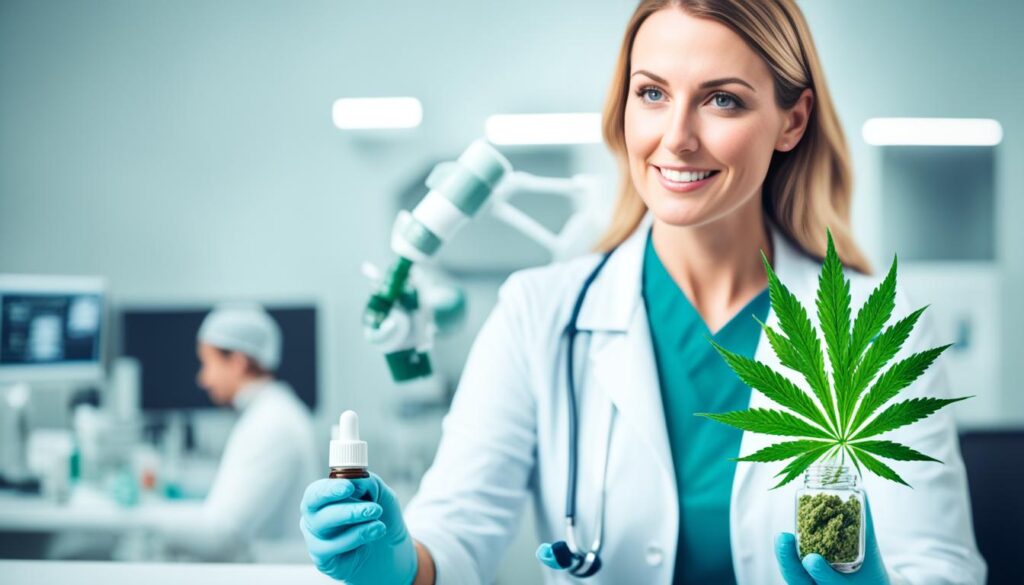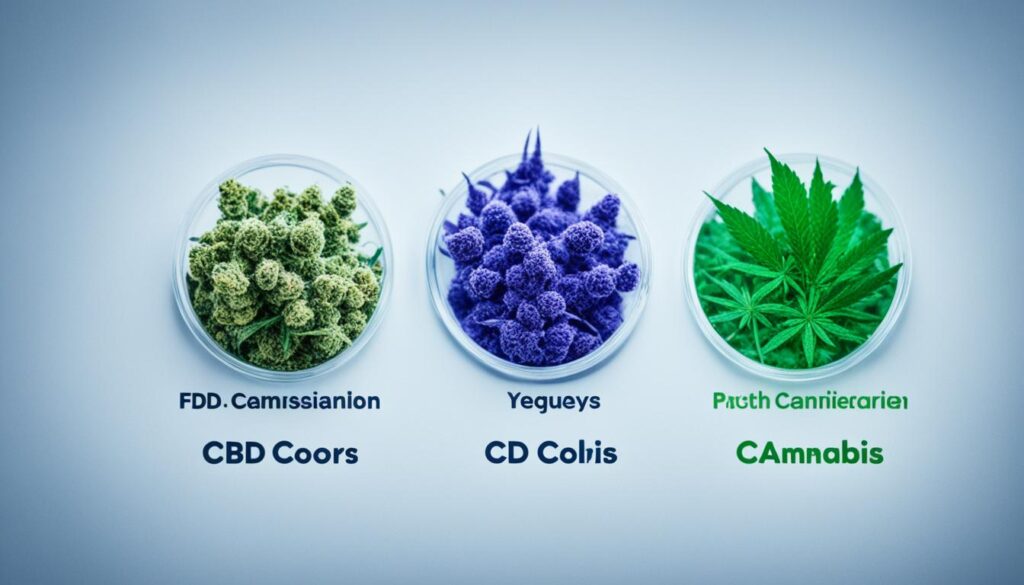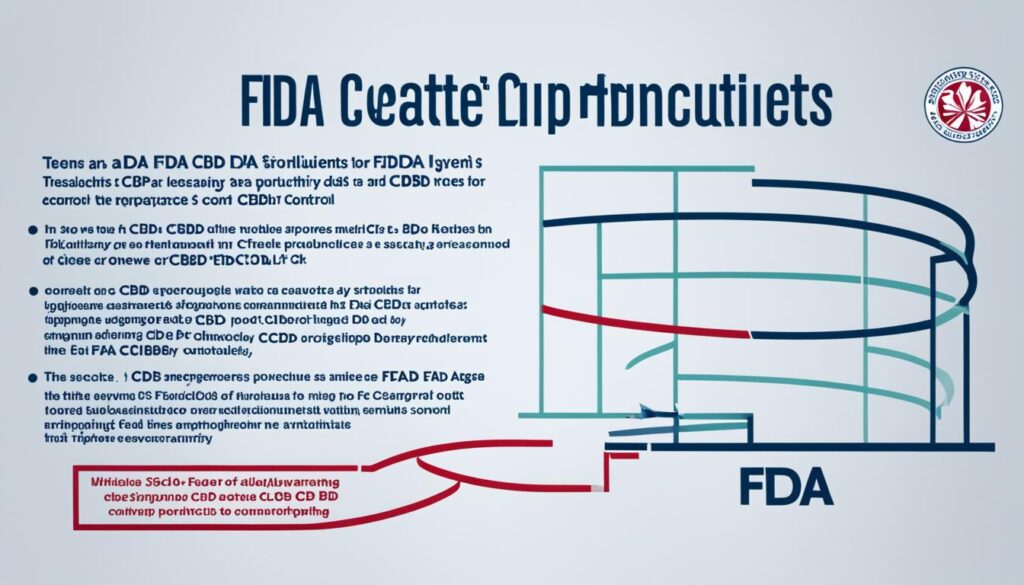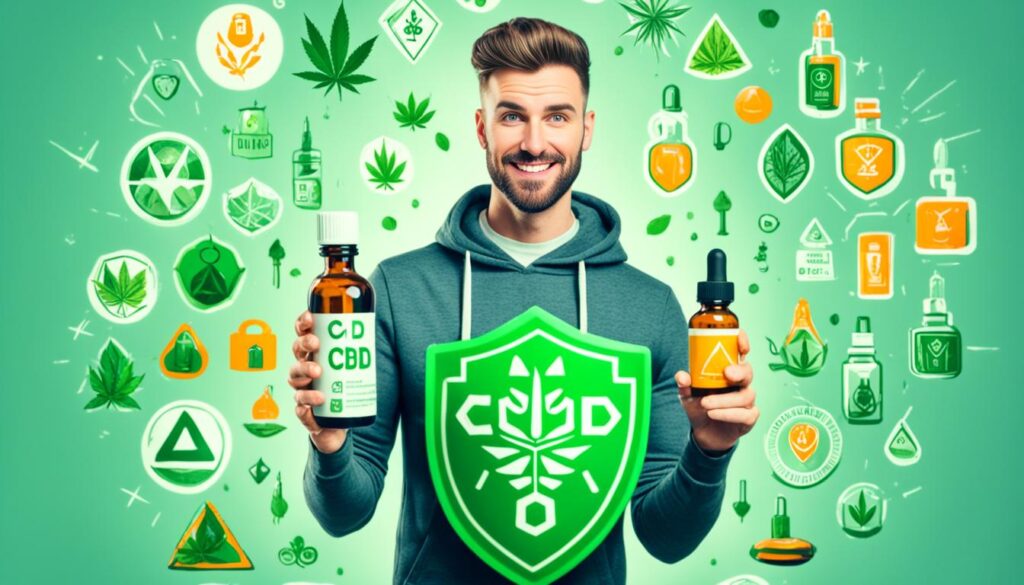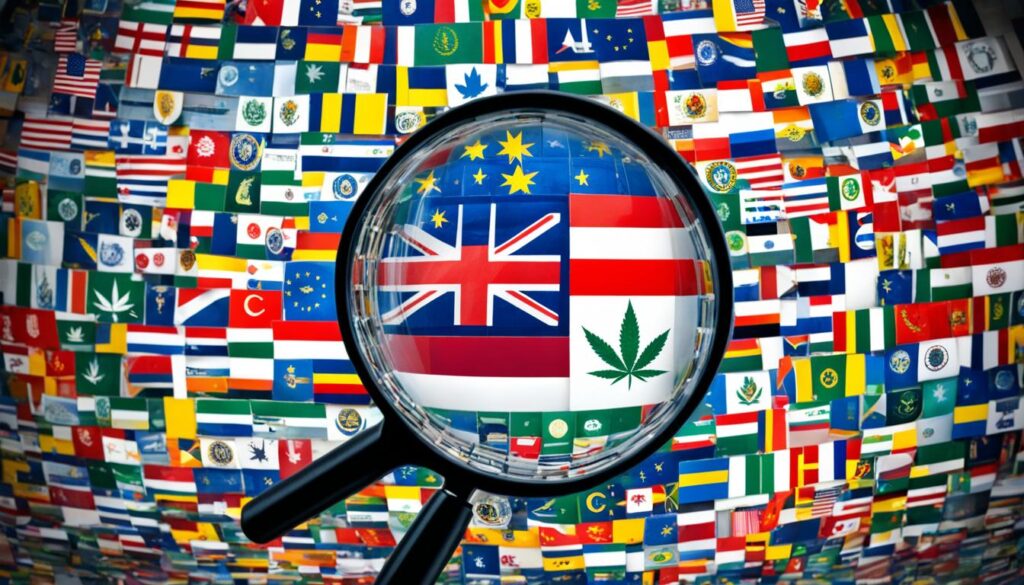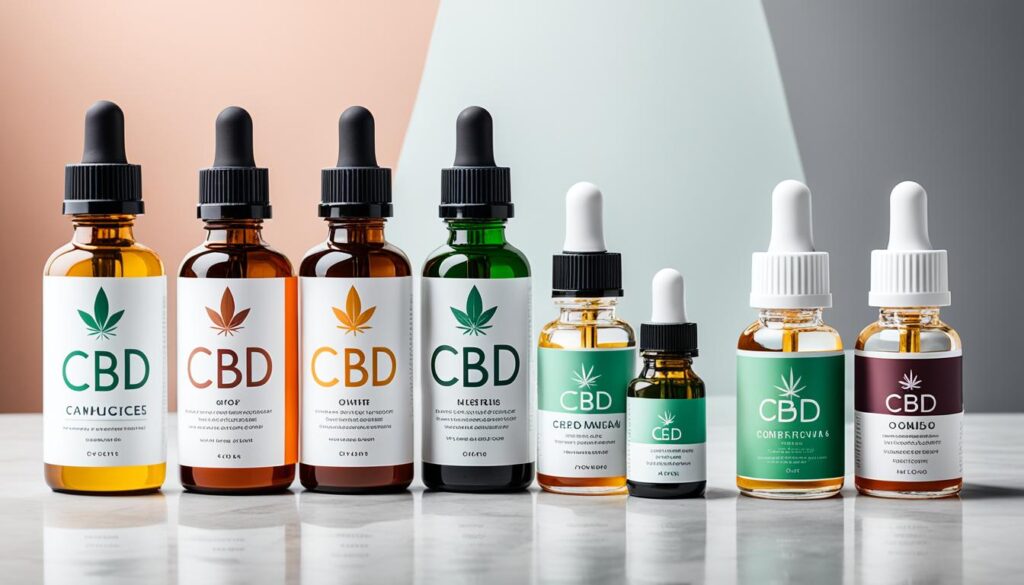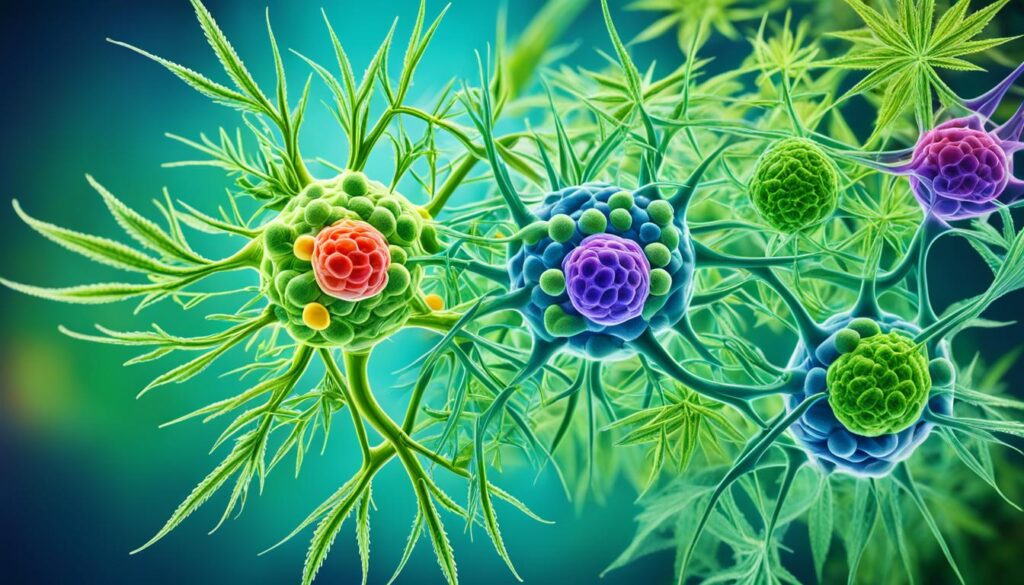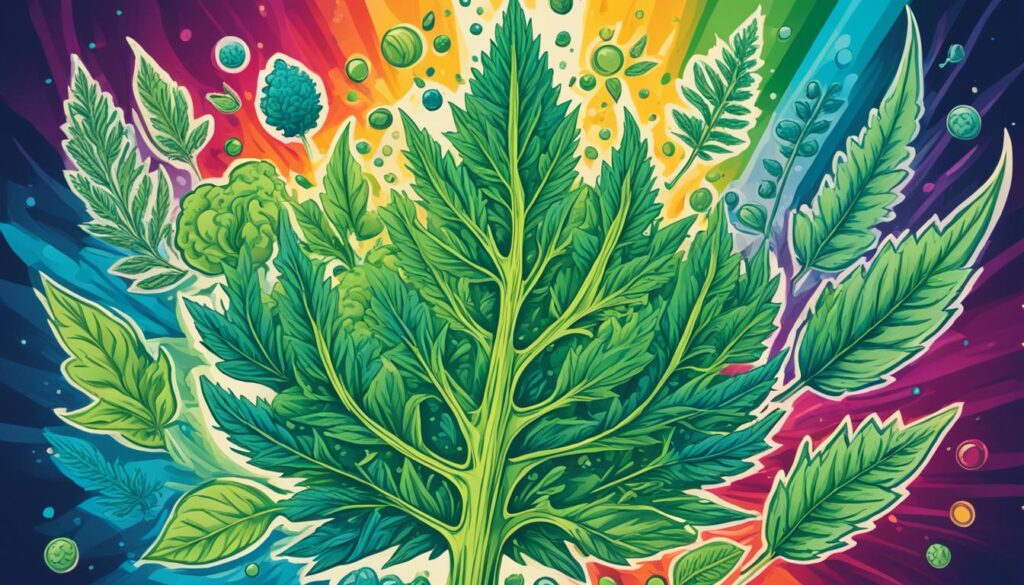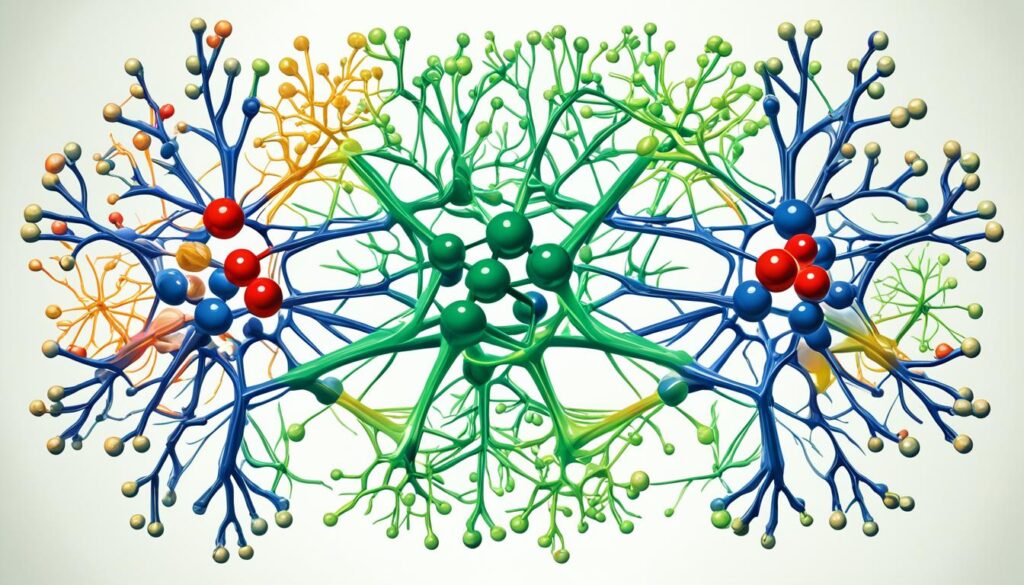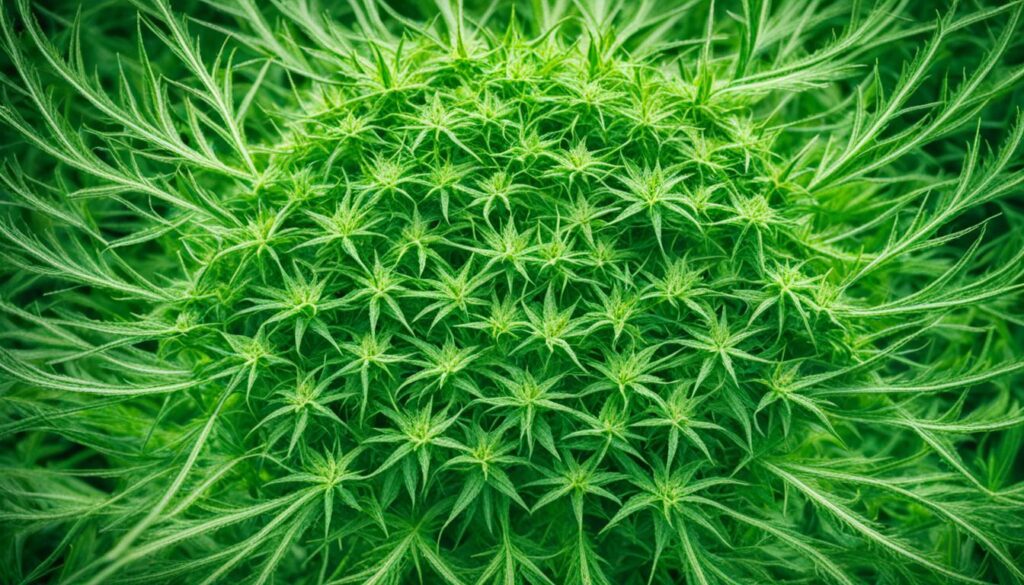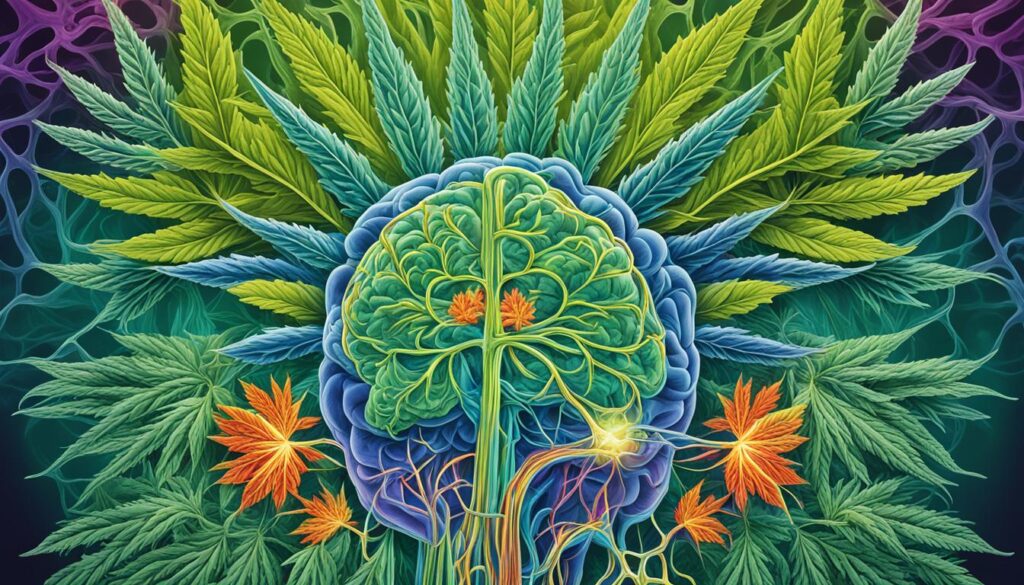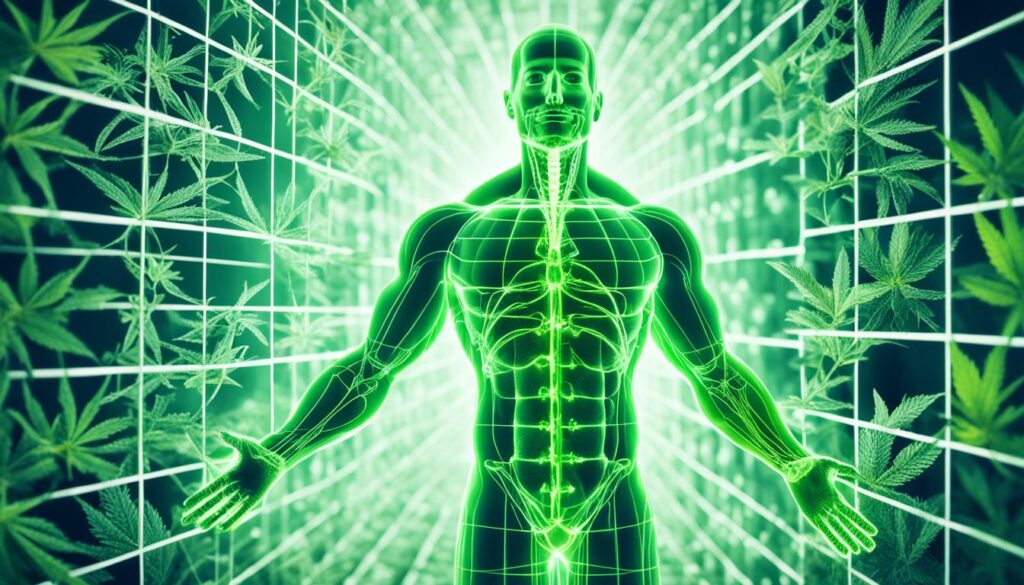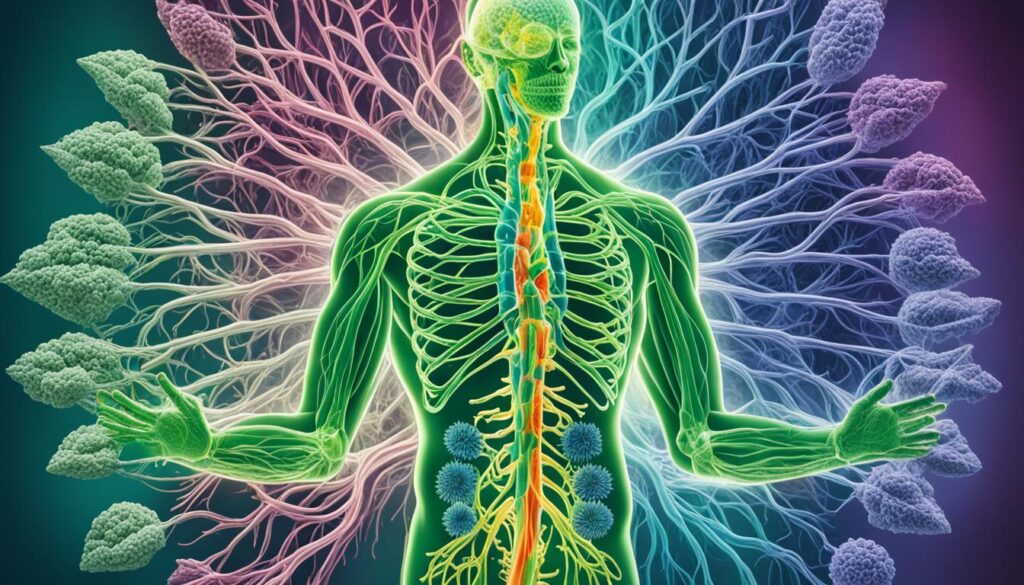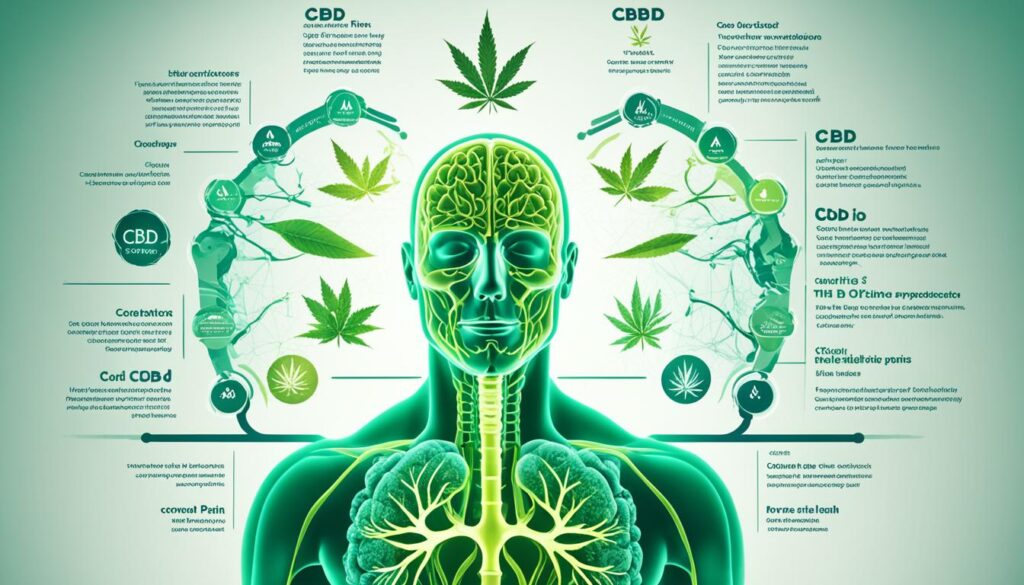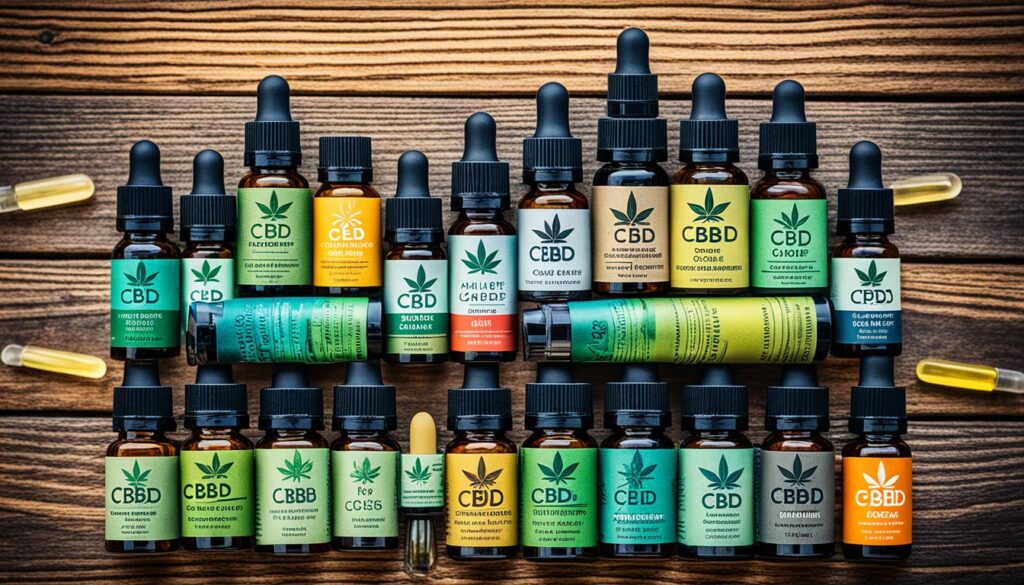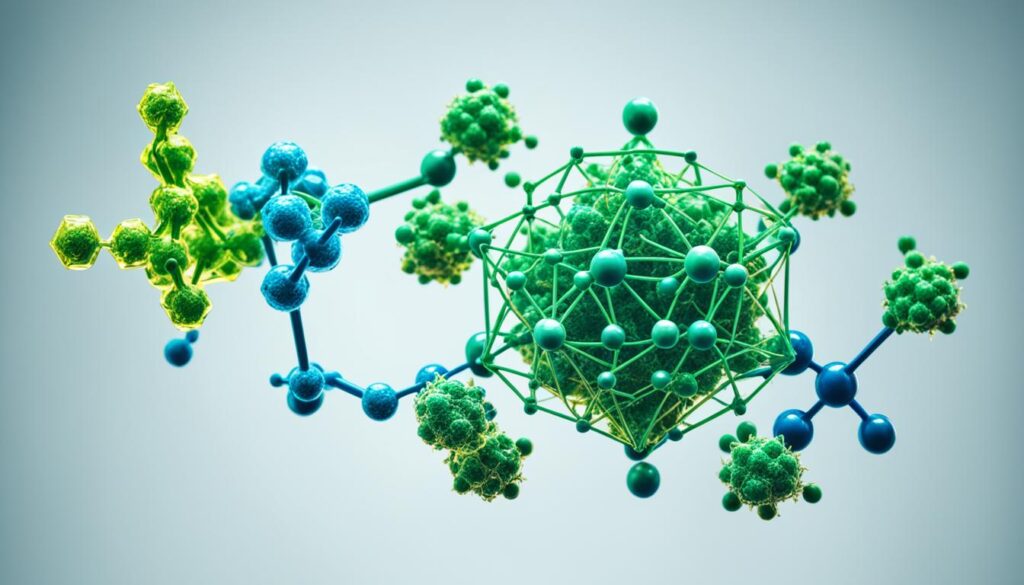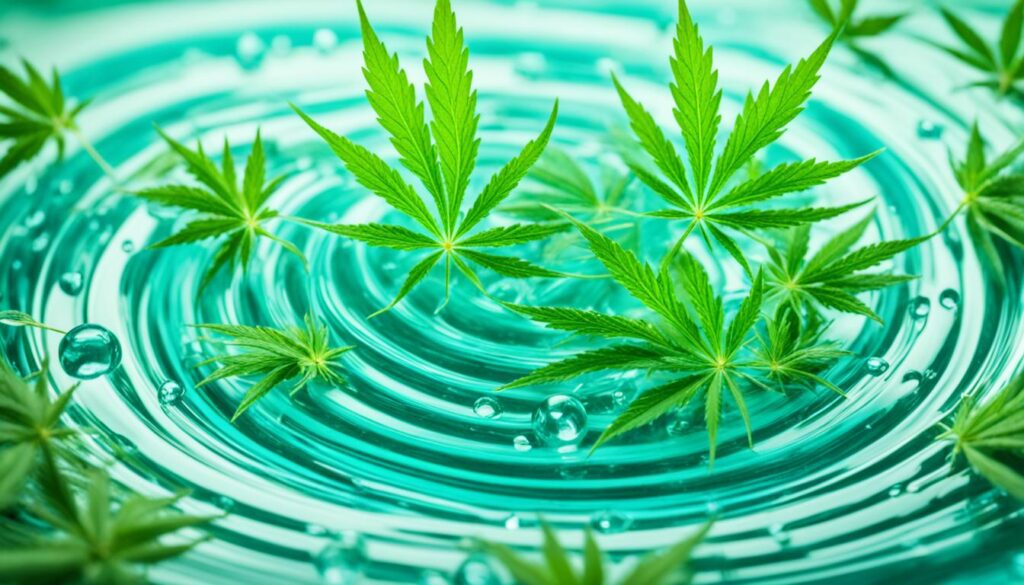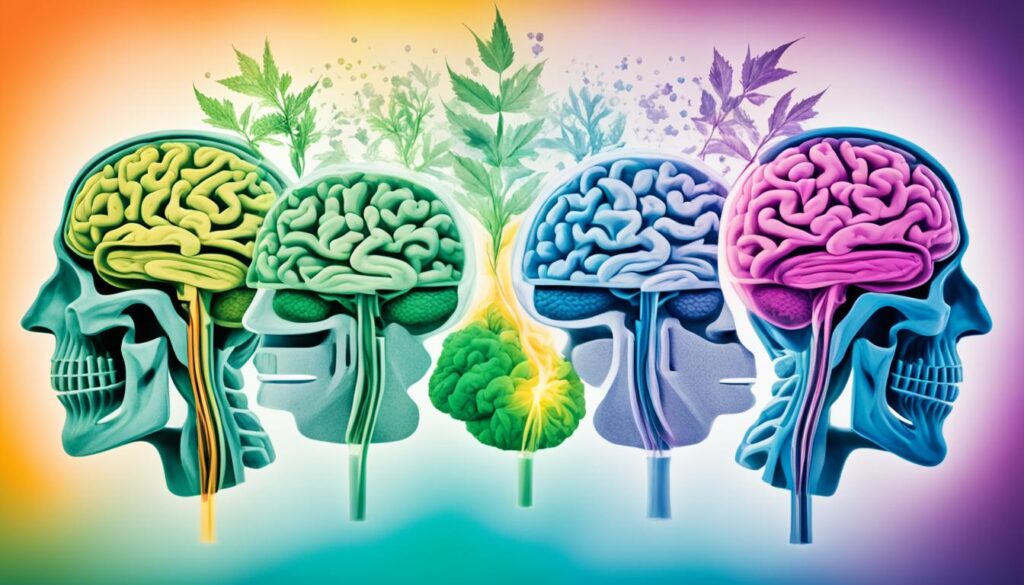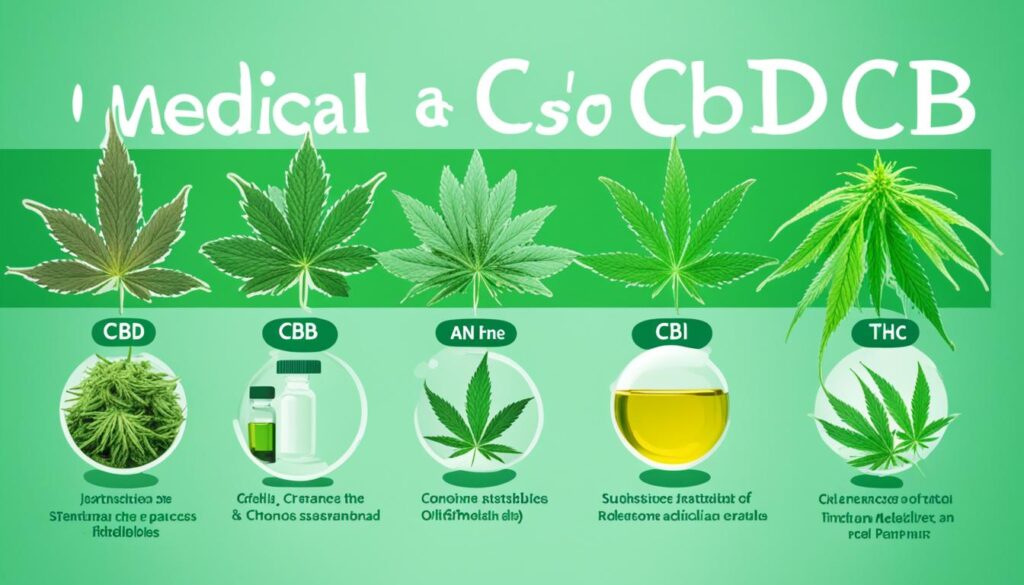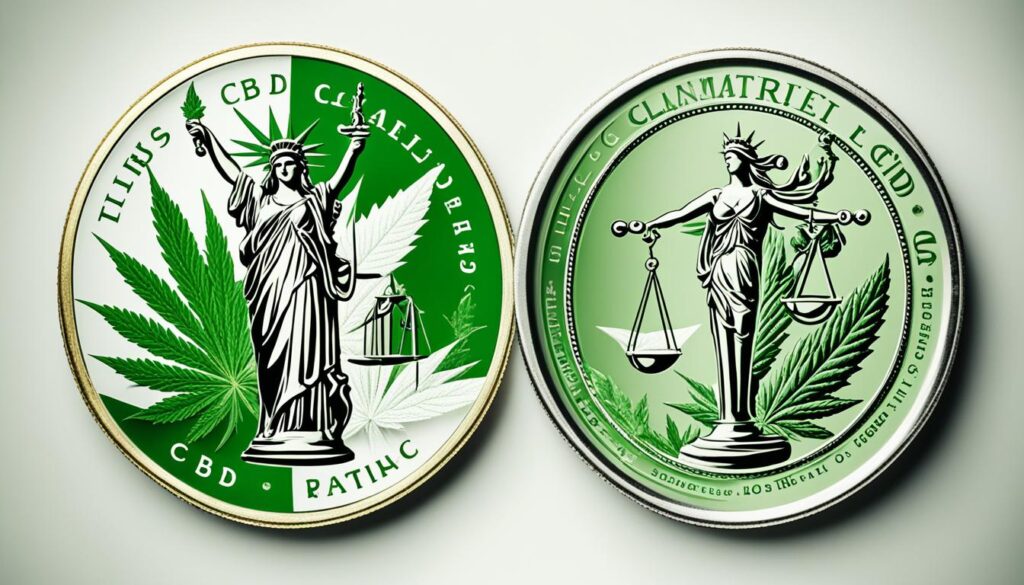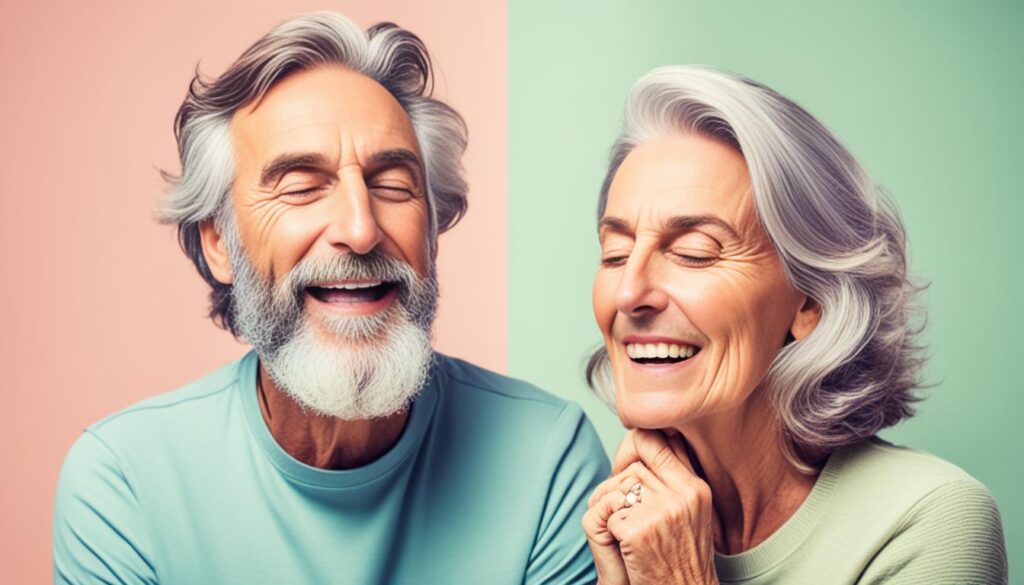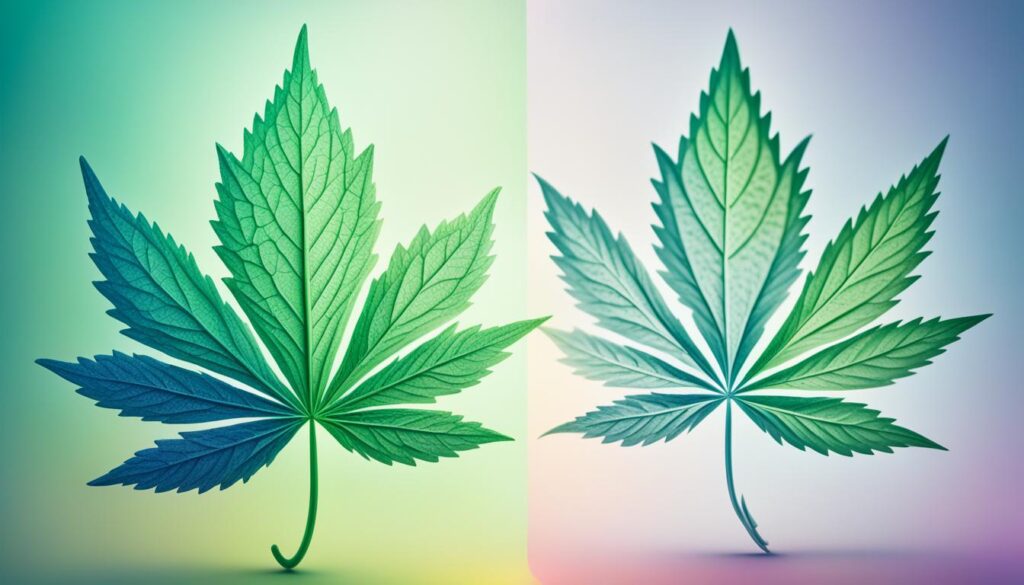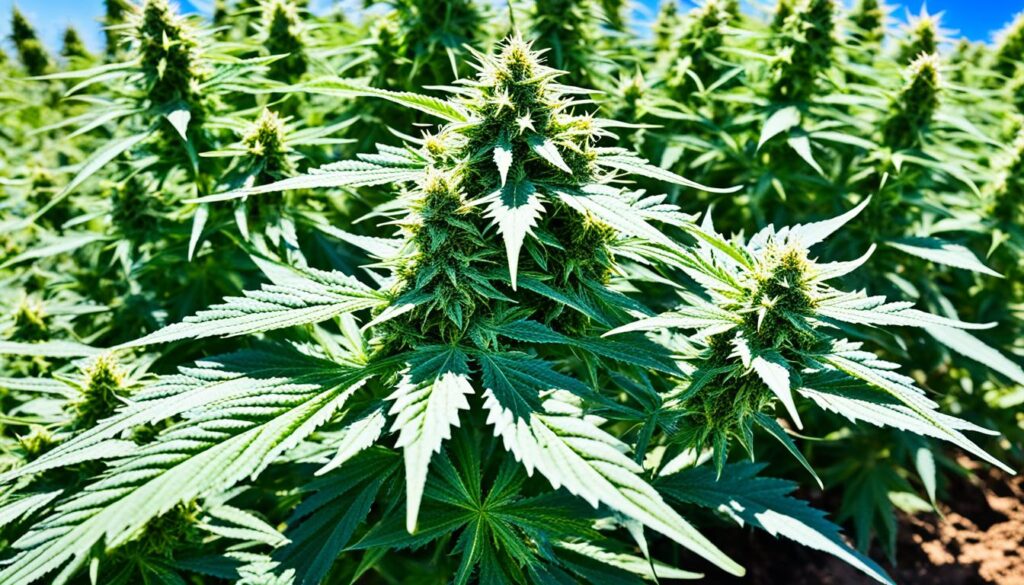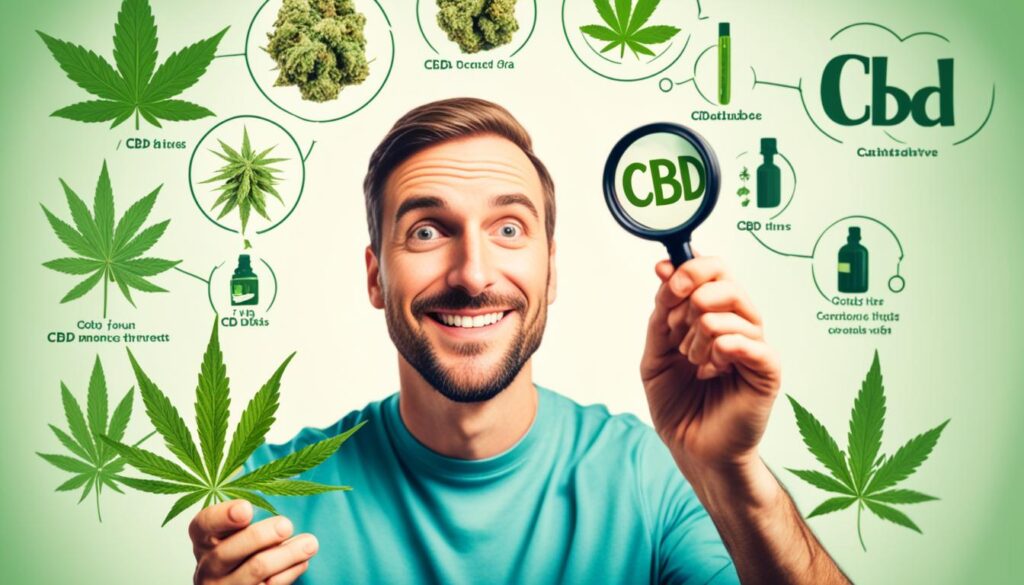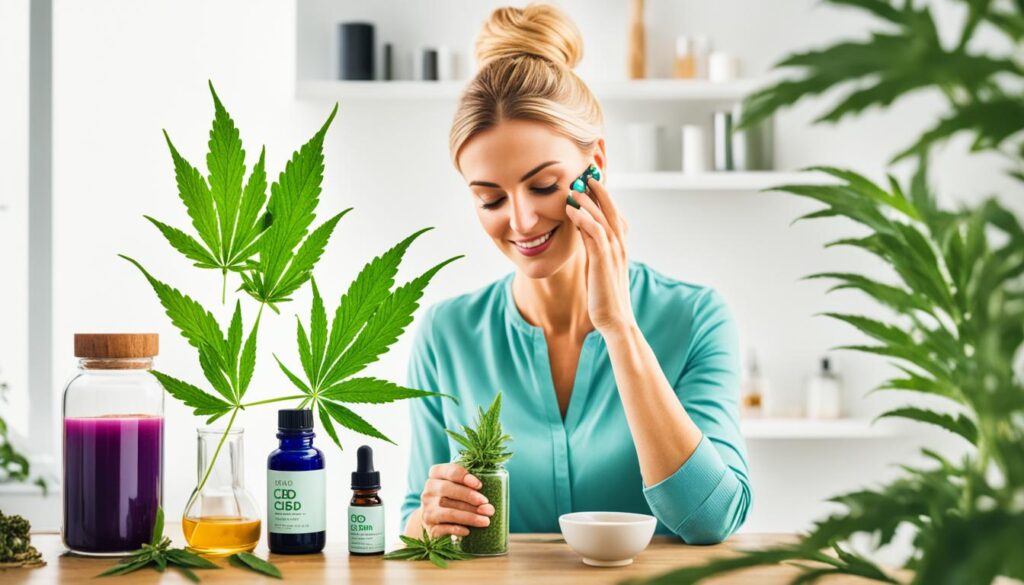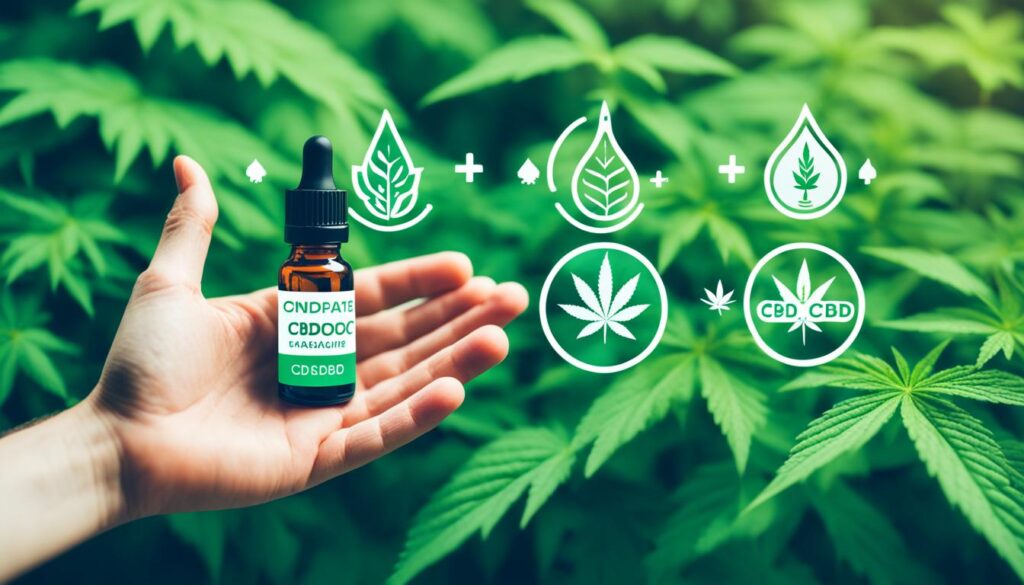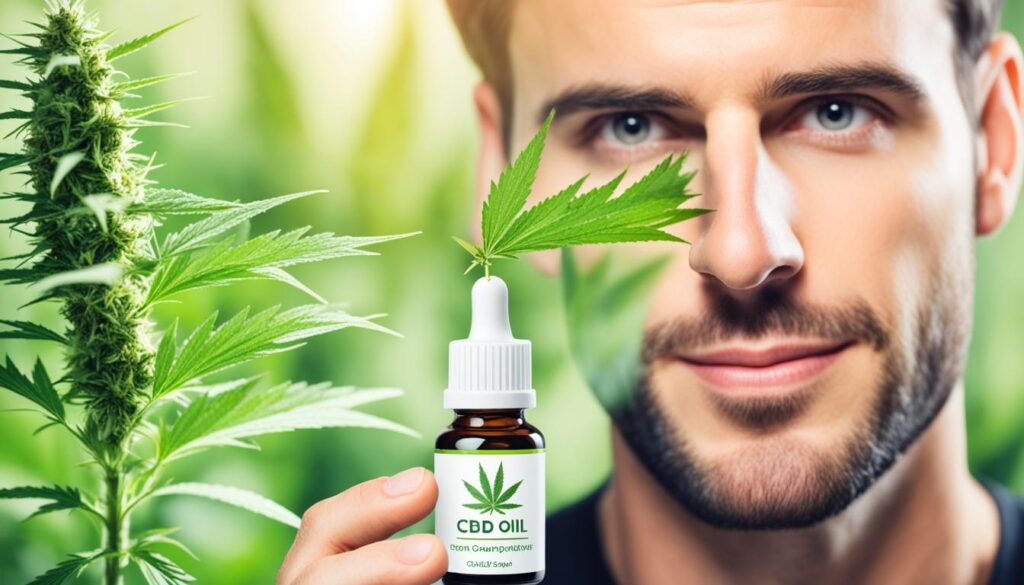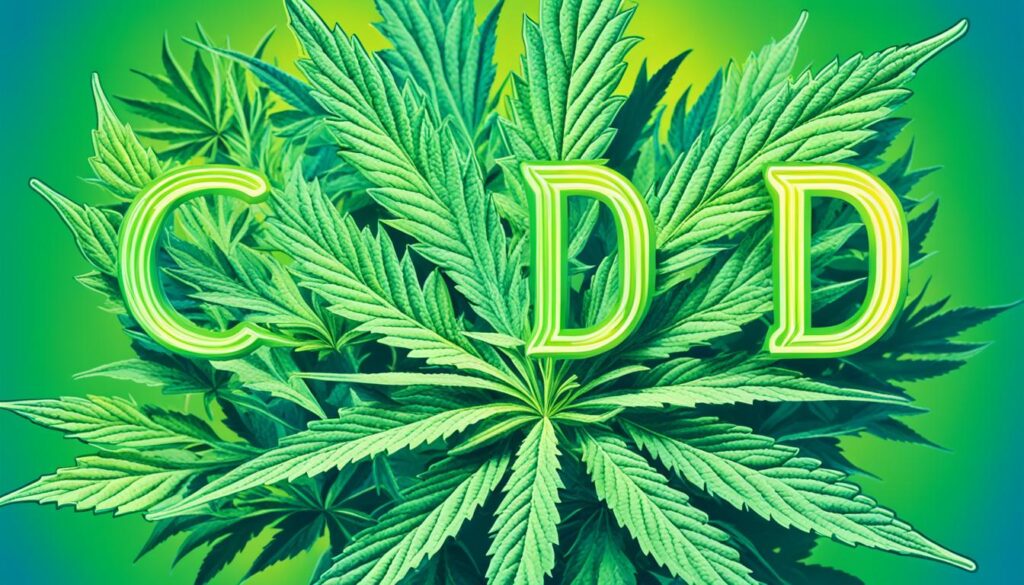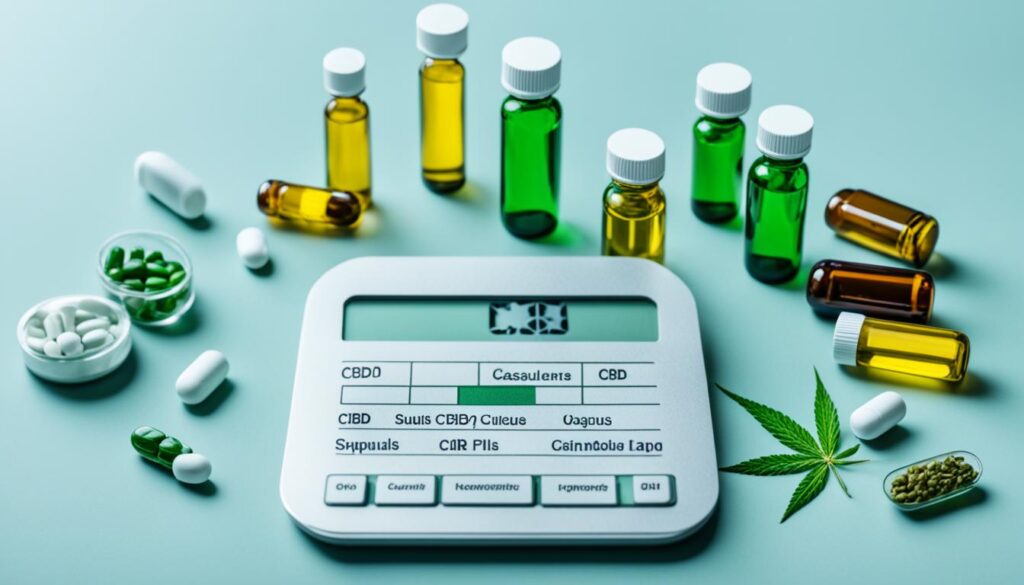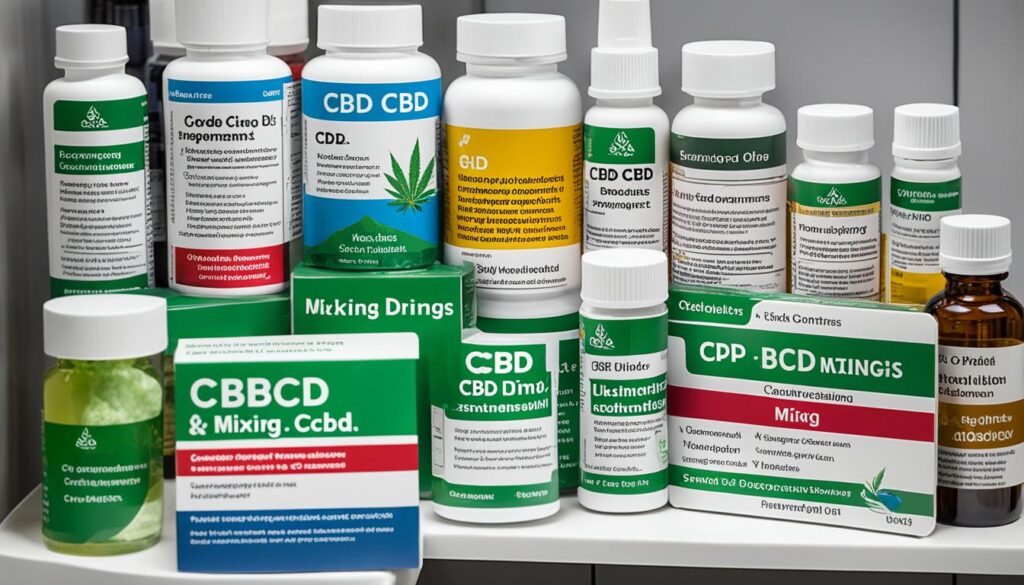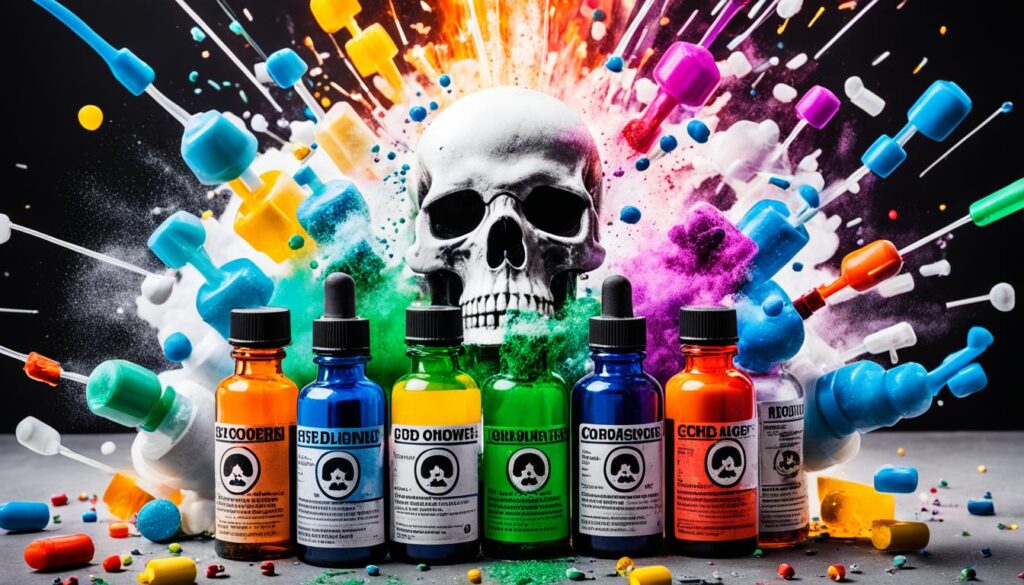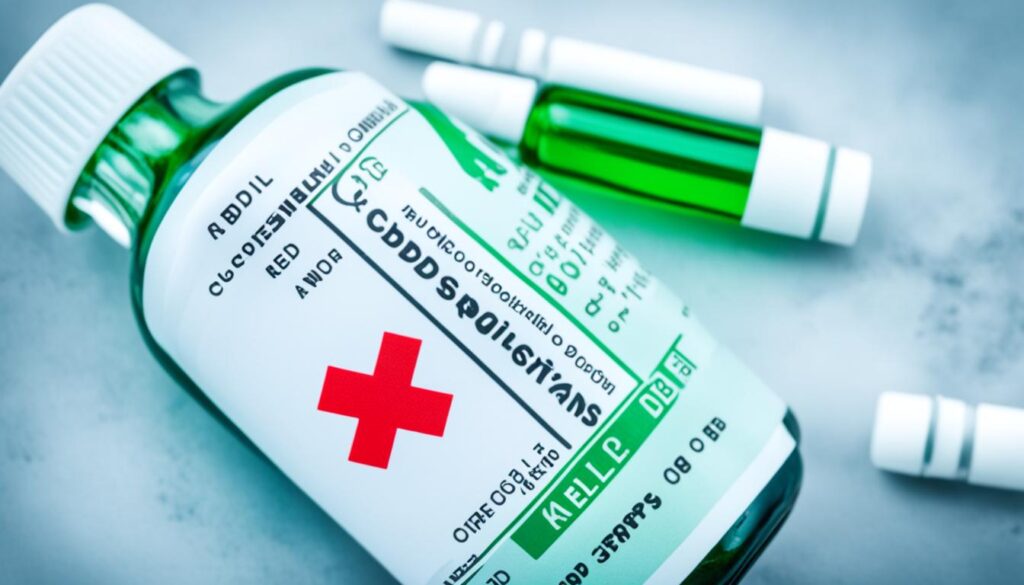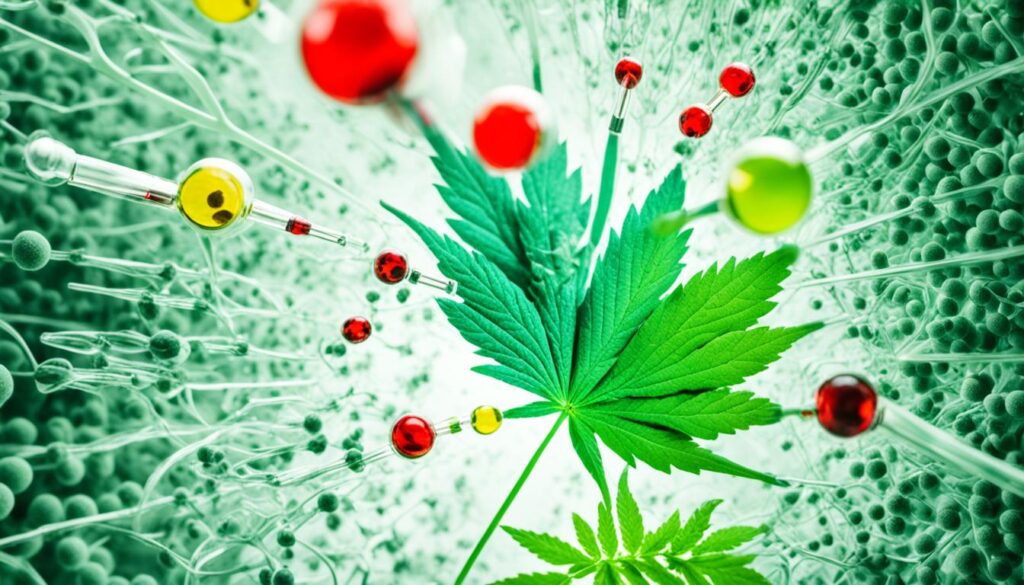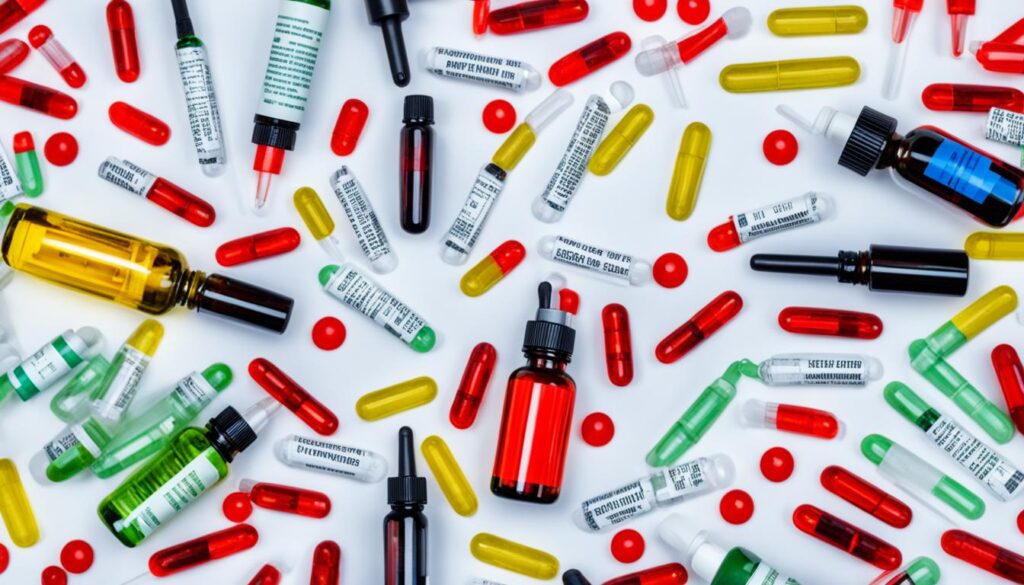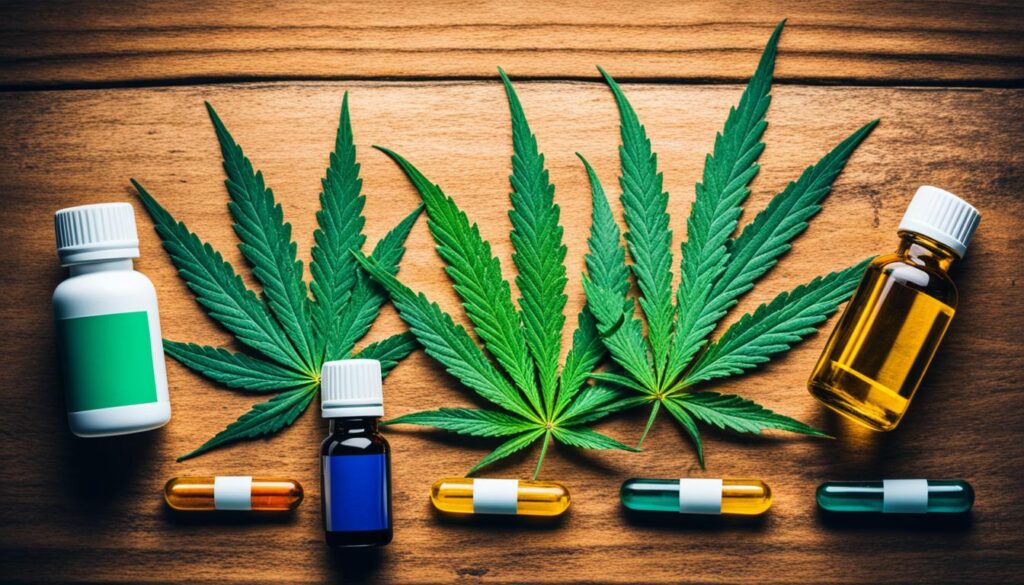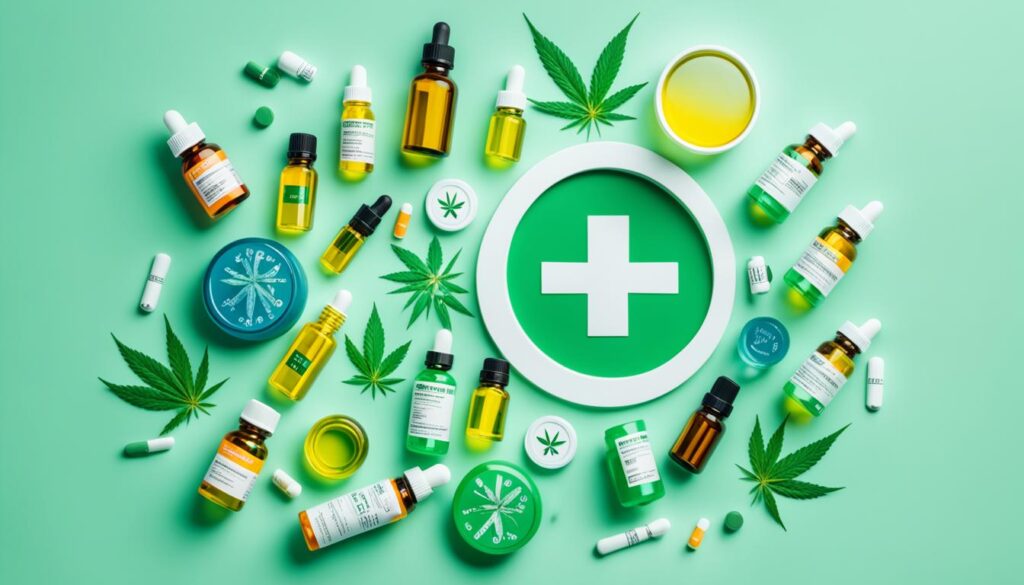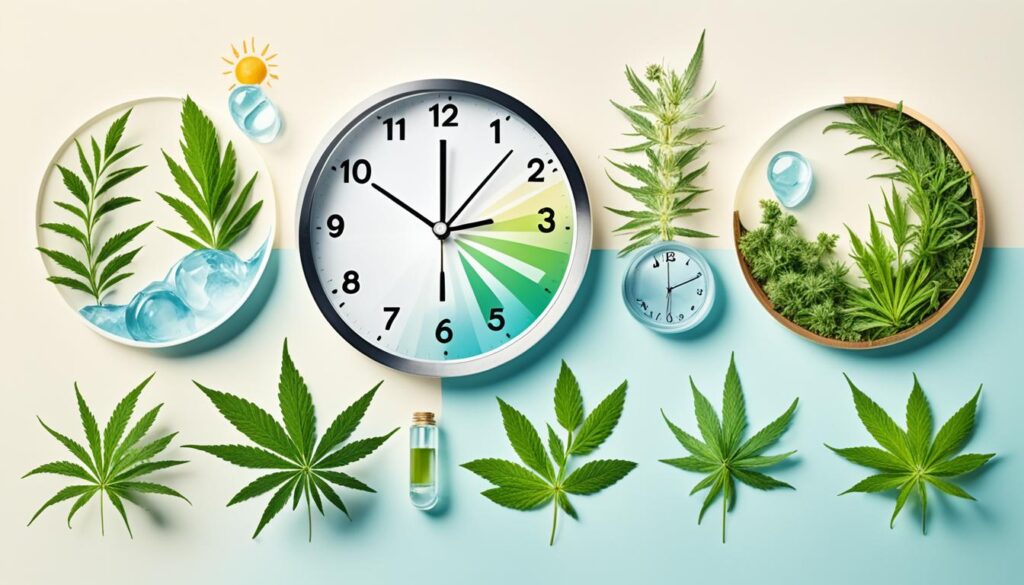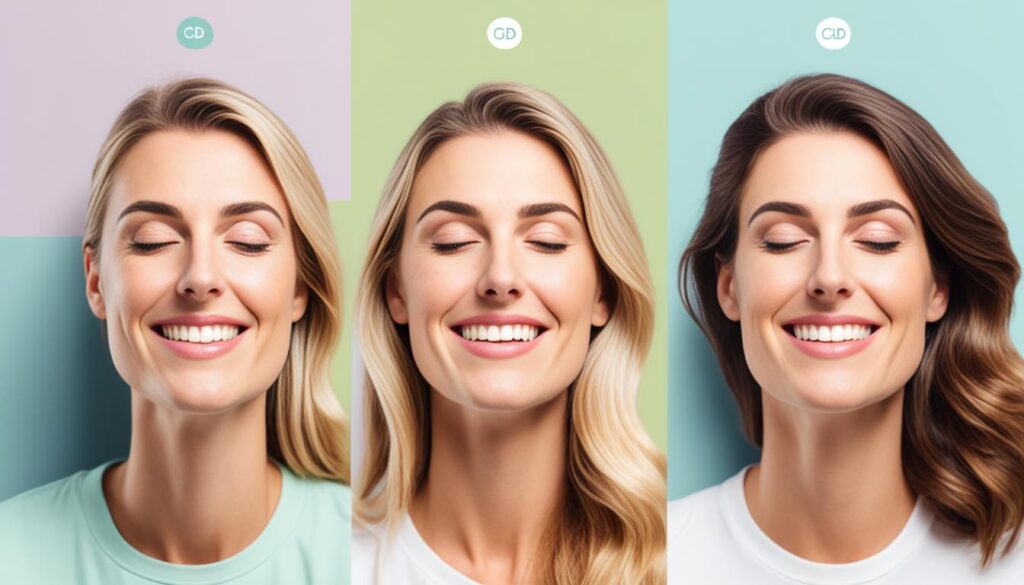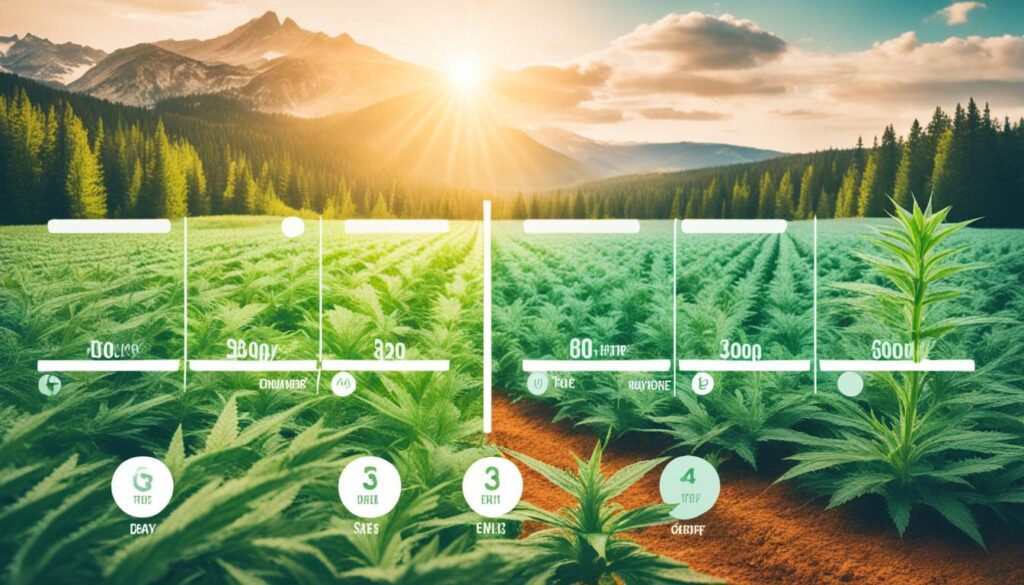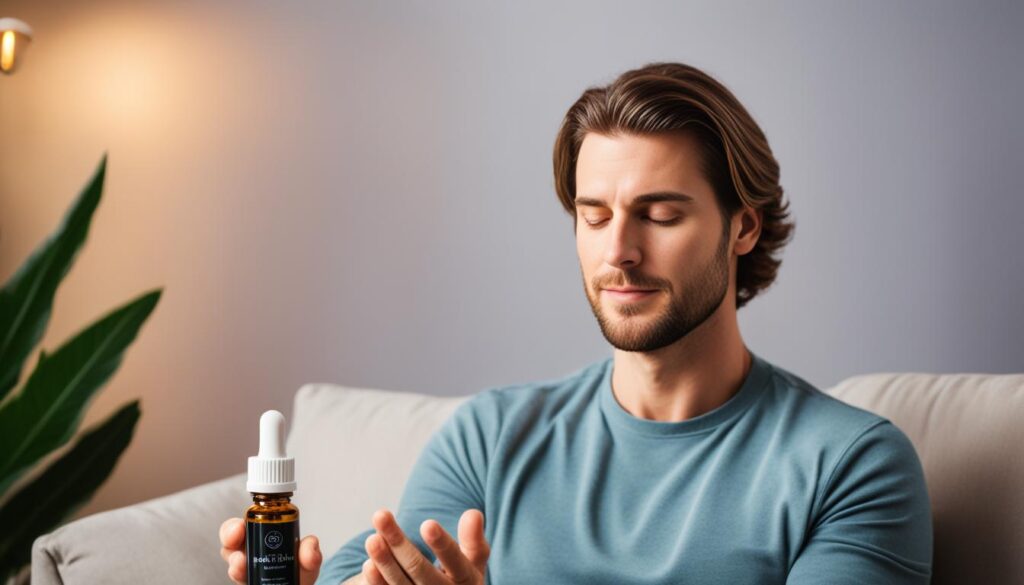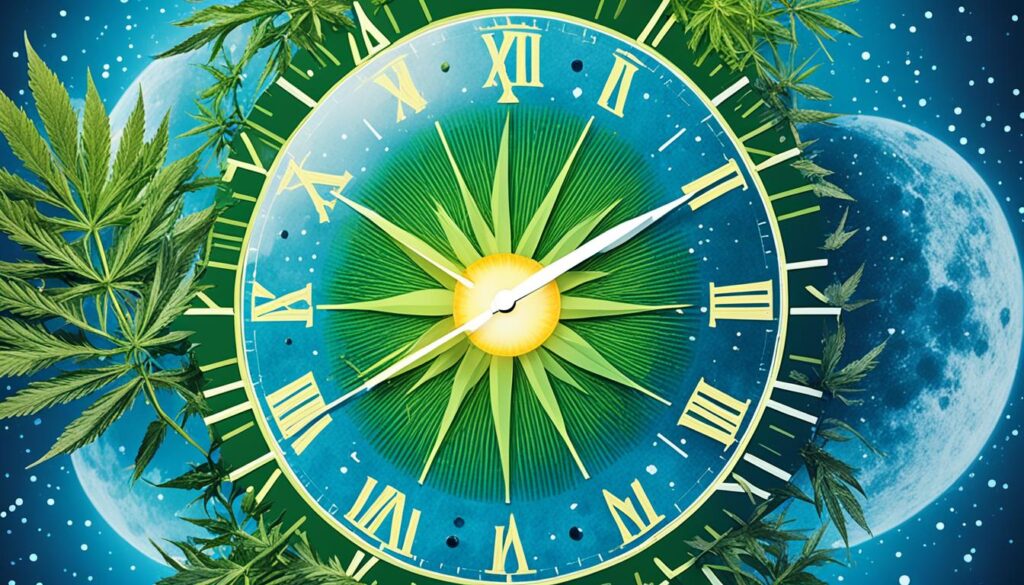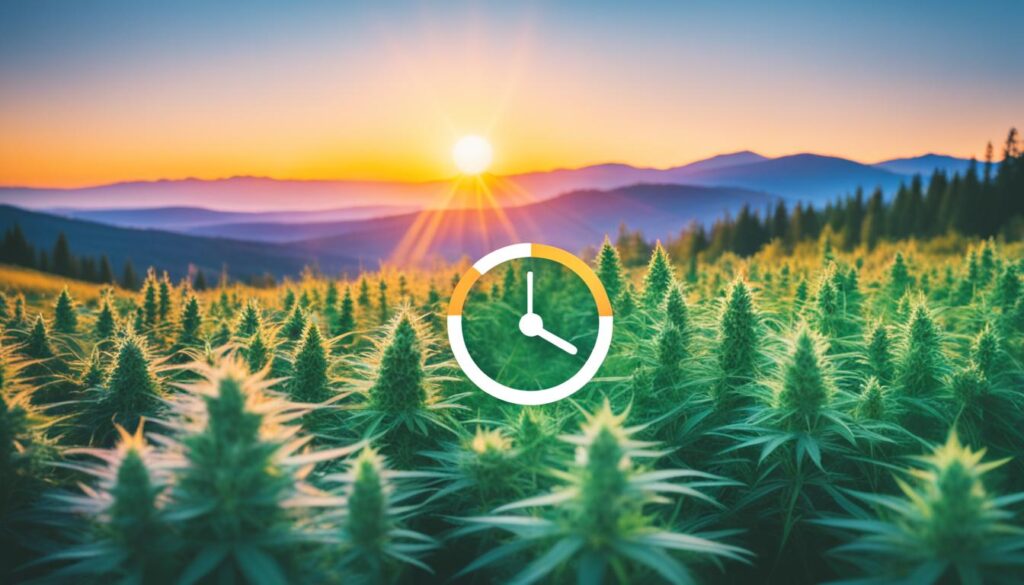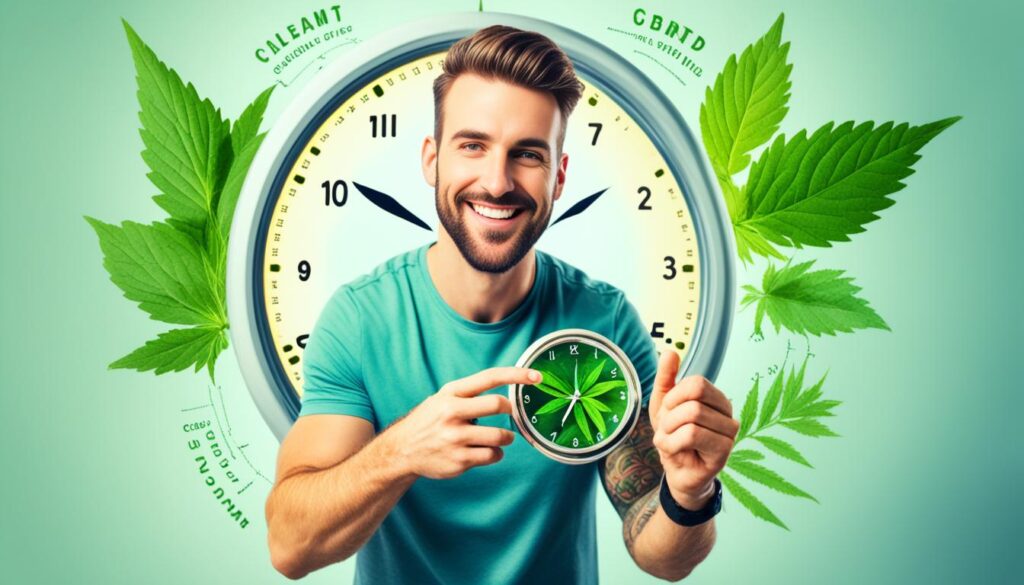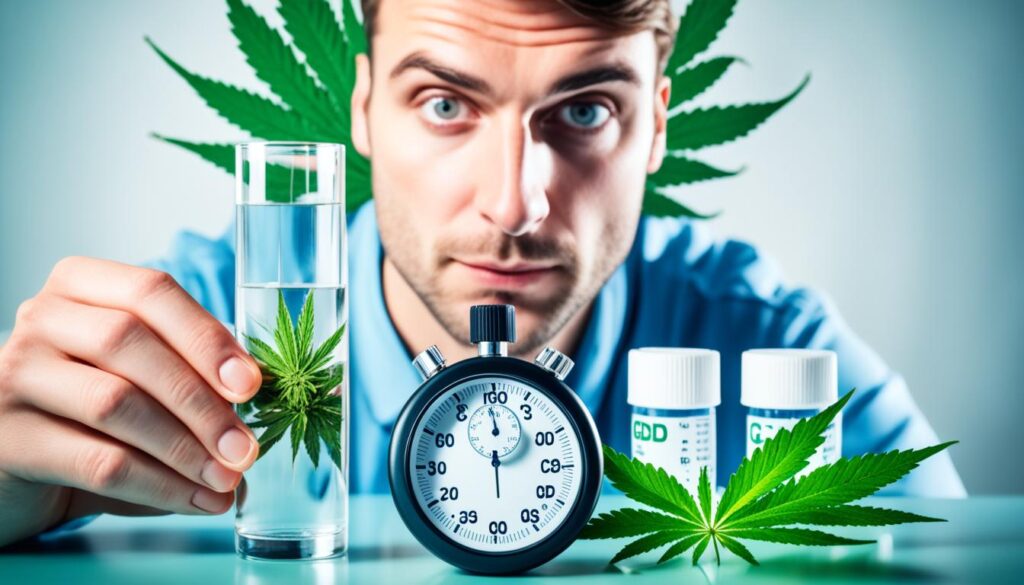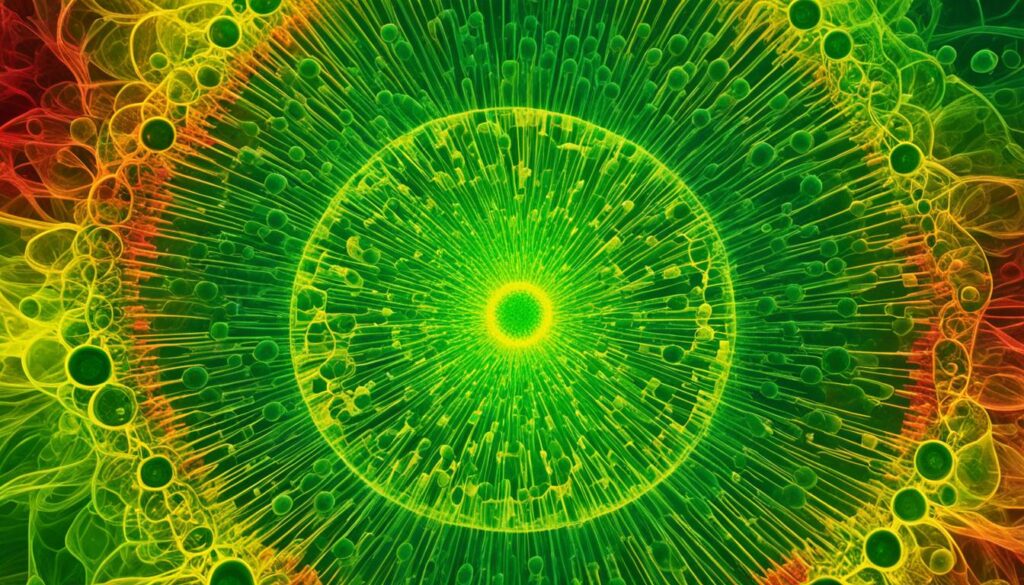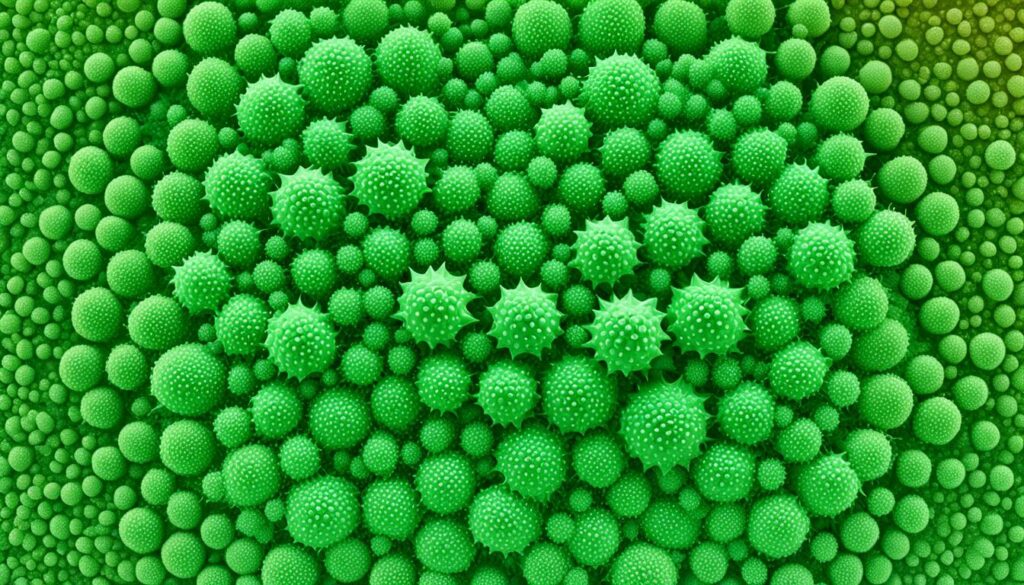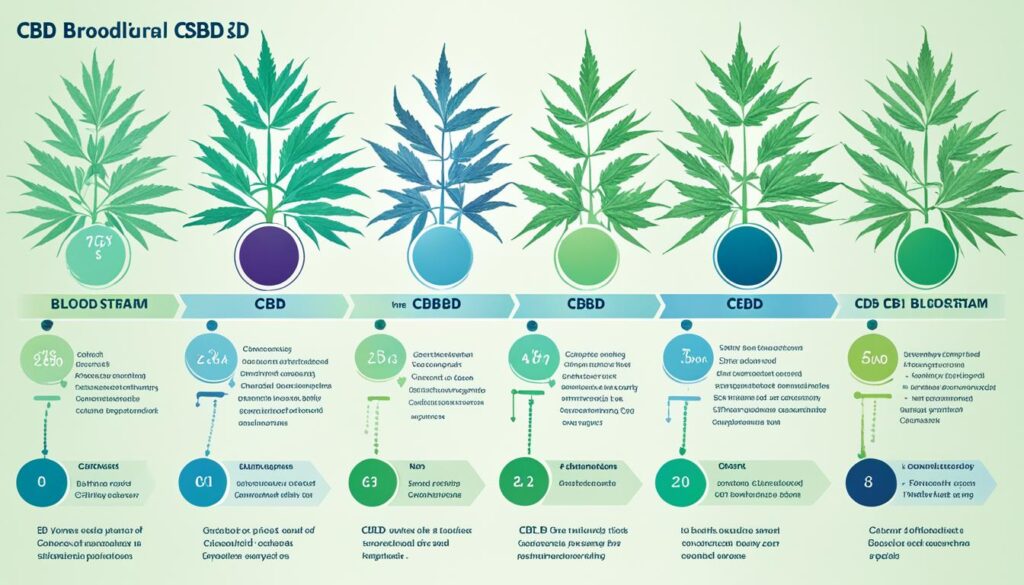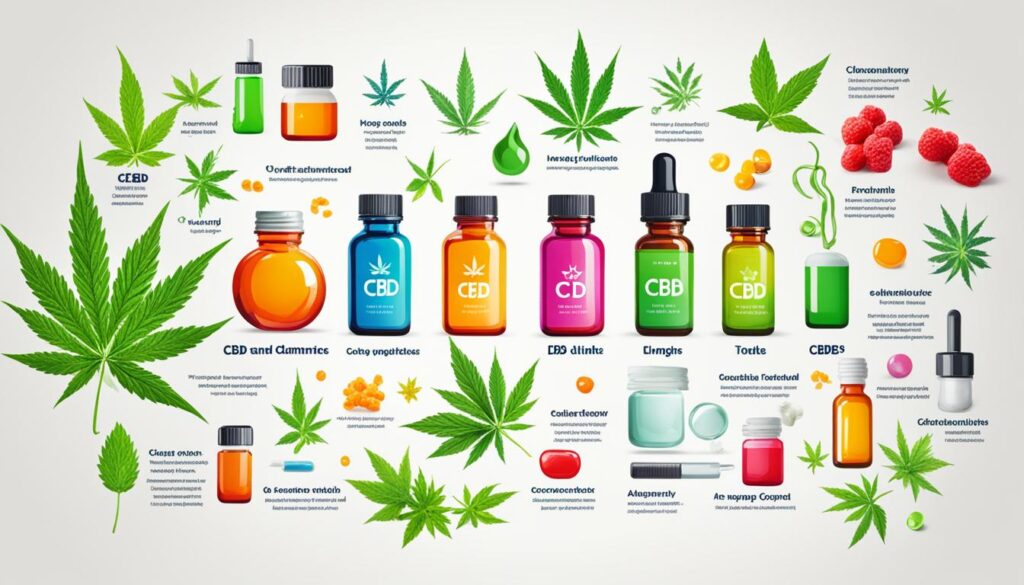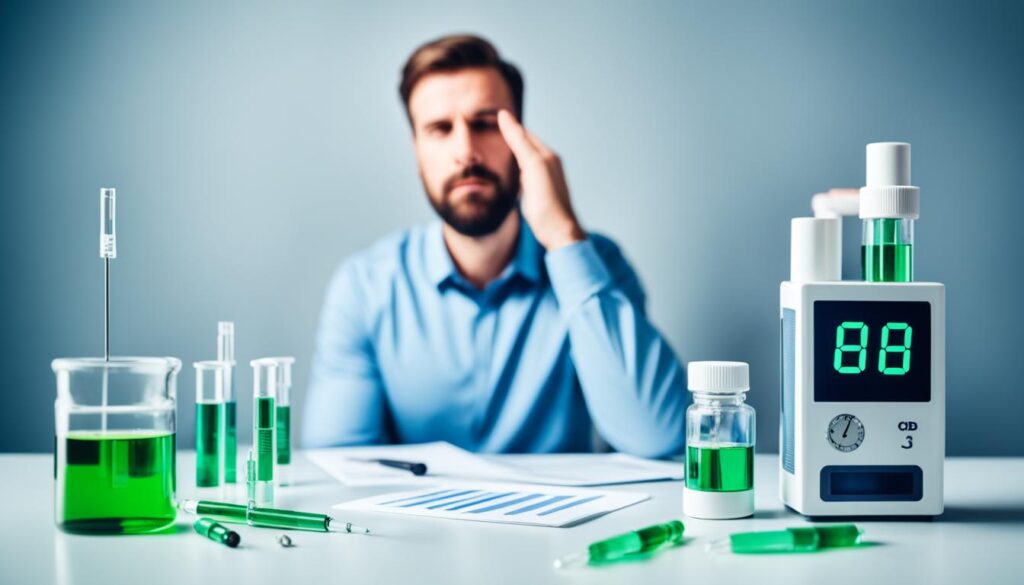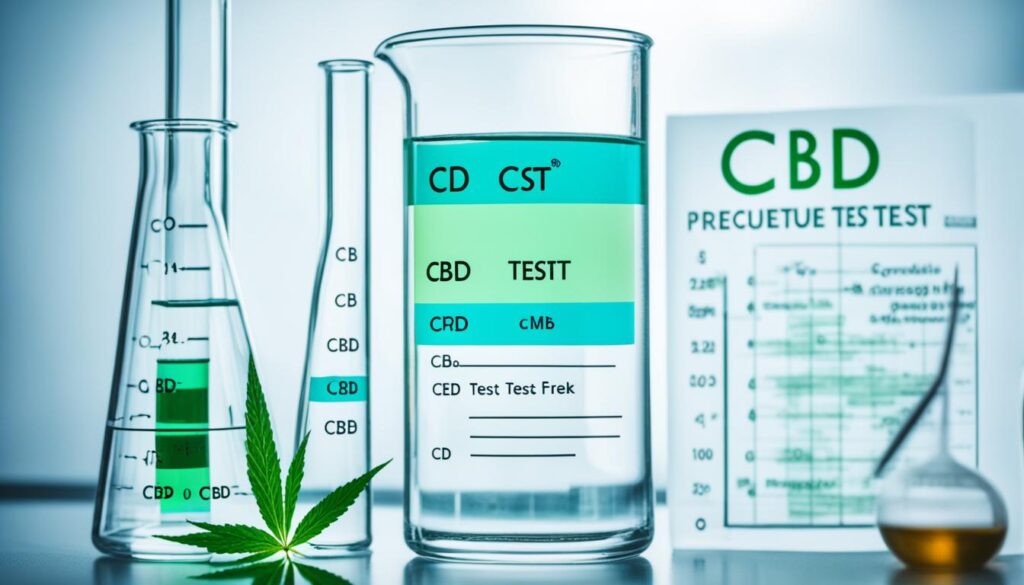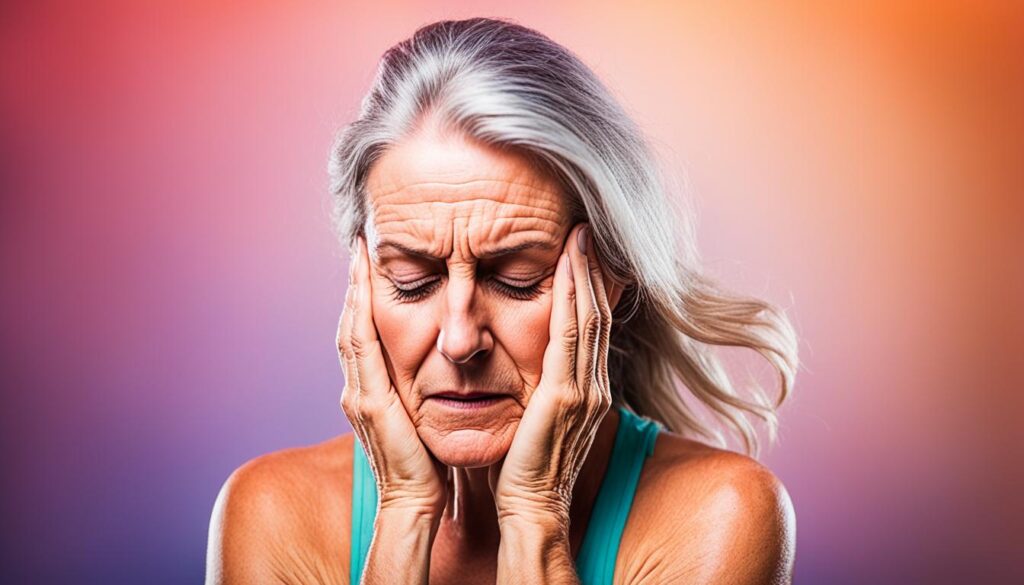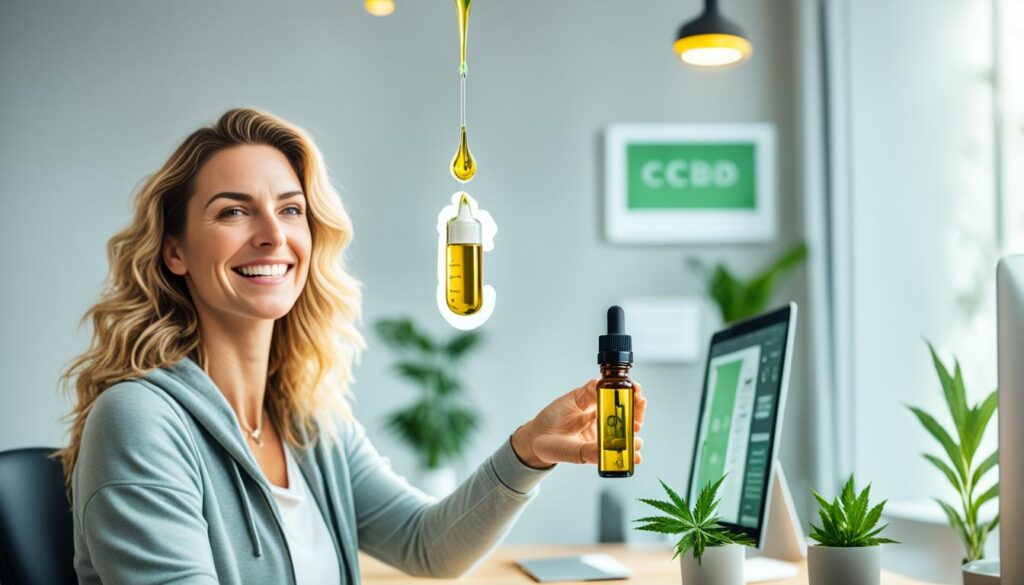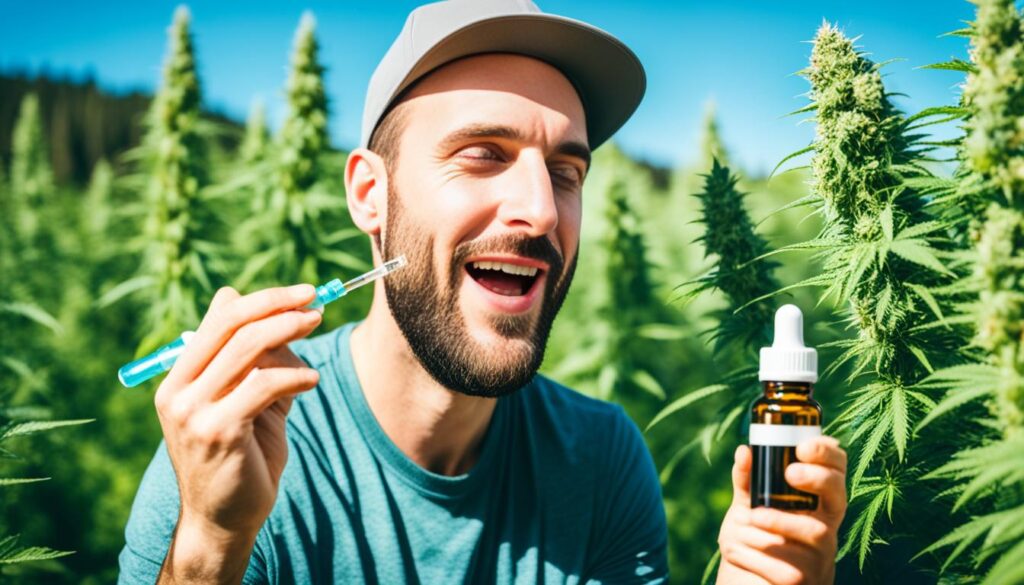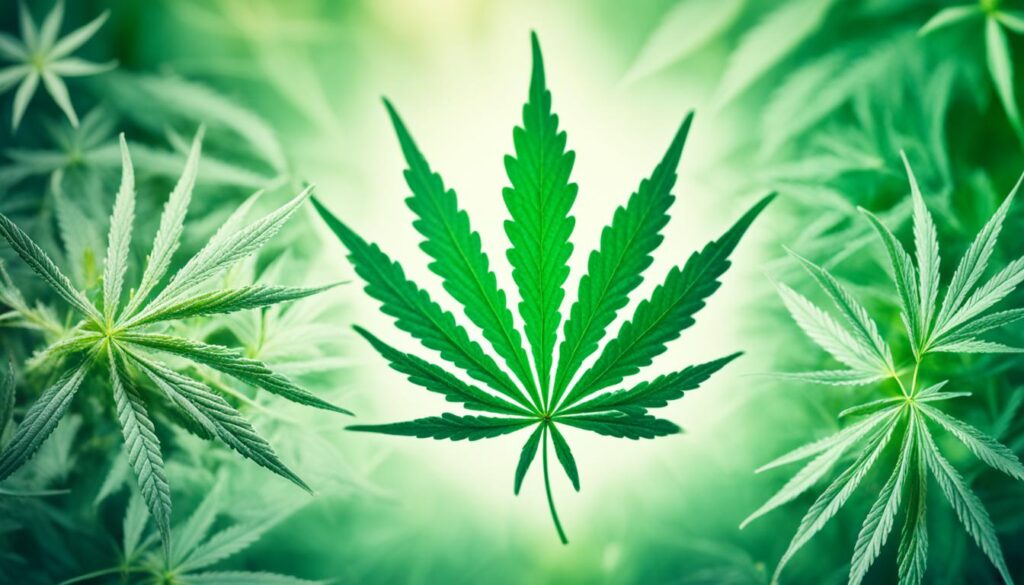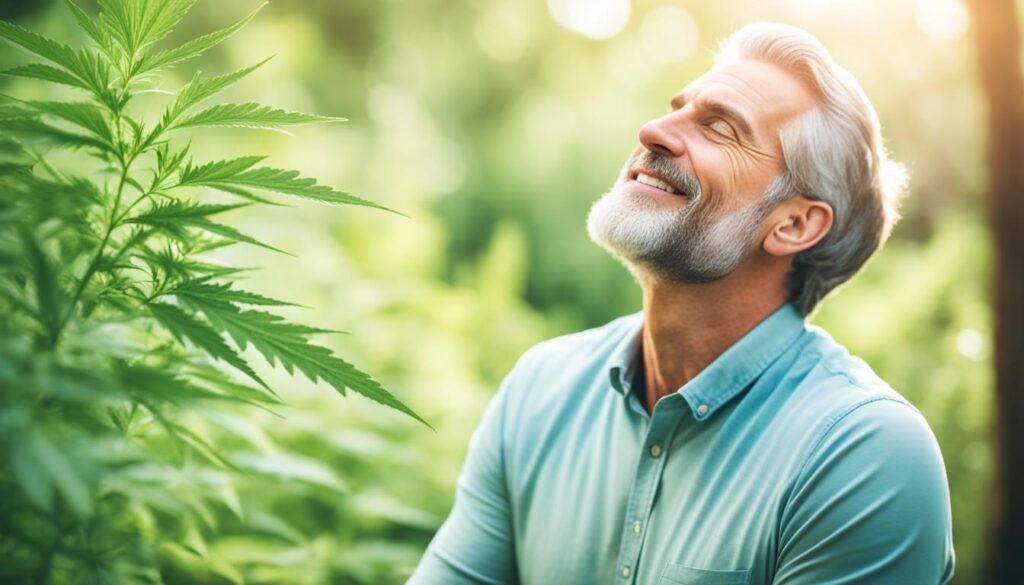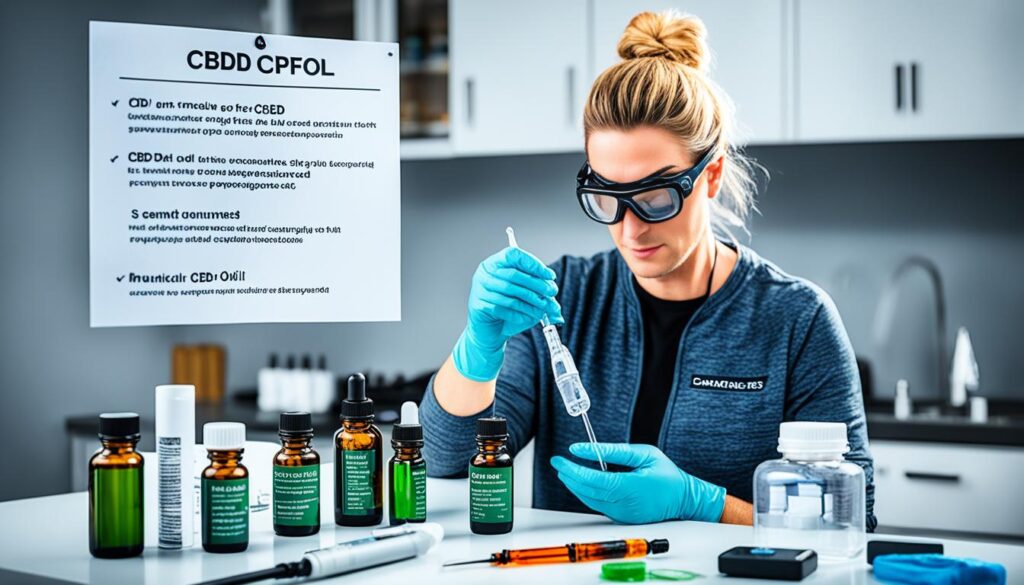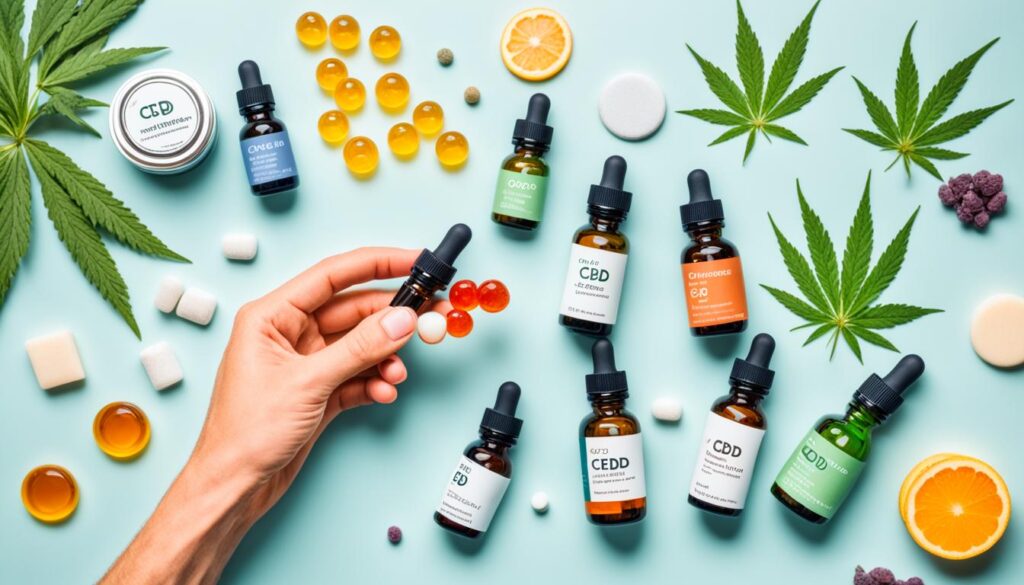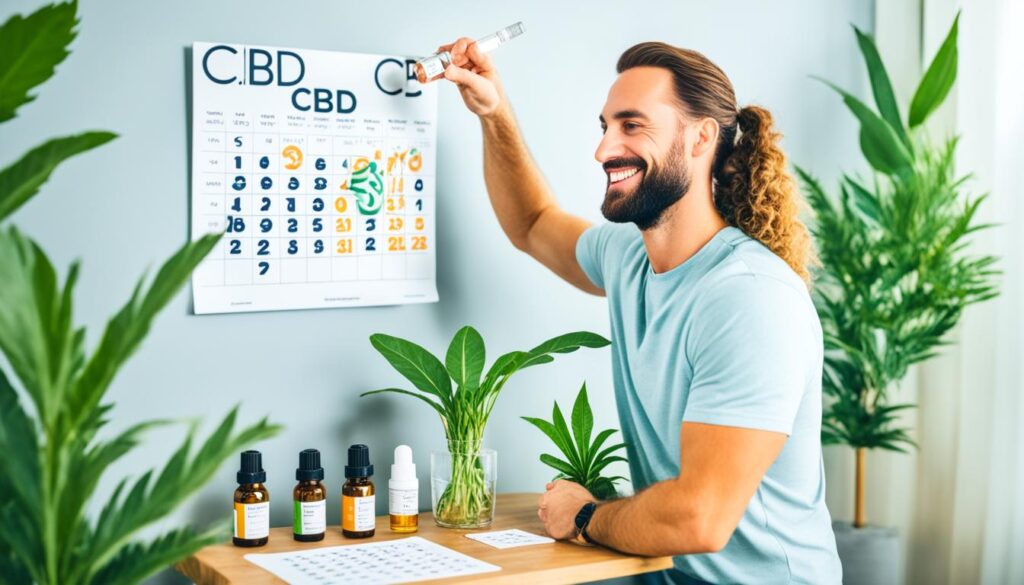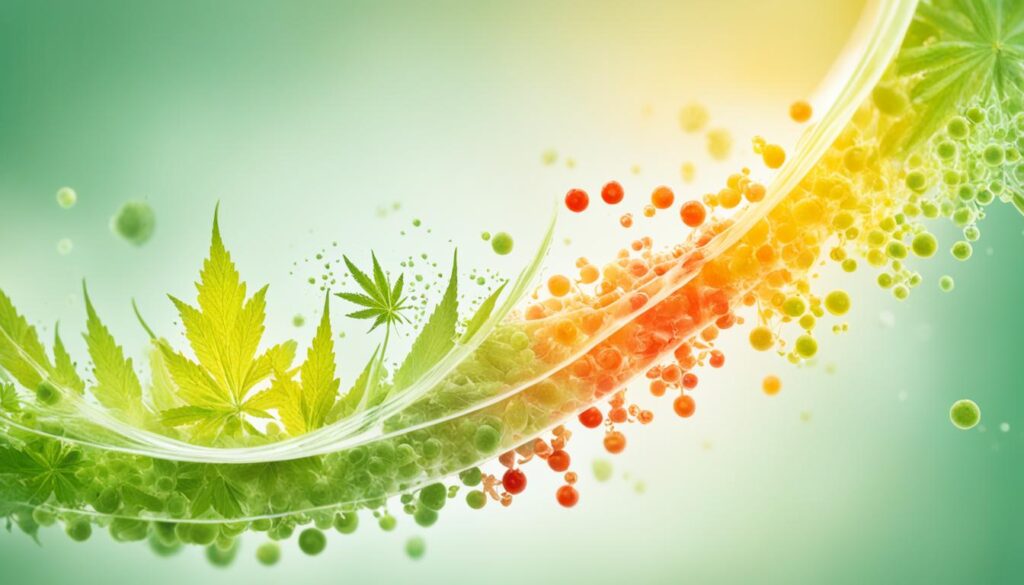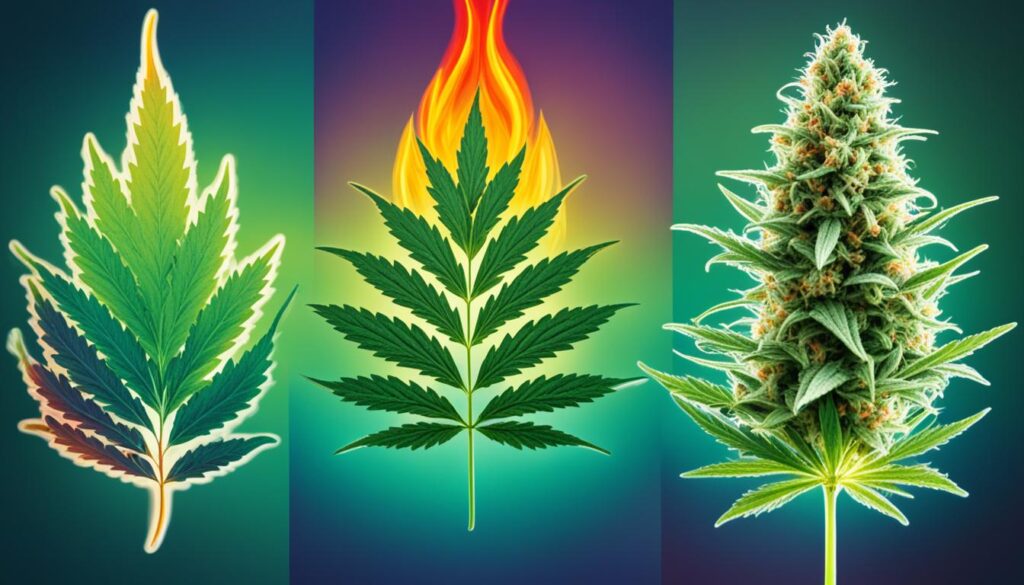CBD has been thoroughly researched in many studies. Yet, its rising fame comes with various myths and misconceptions. In this piece, we’ll explore CBD. We aim to clear the air and give you the info needed to understand this compound.
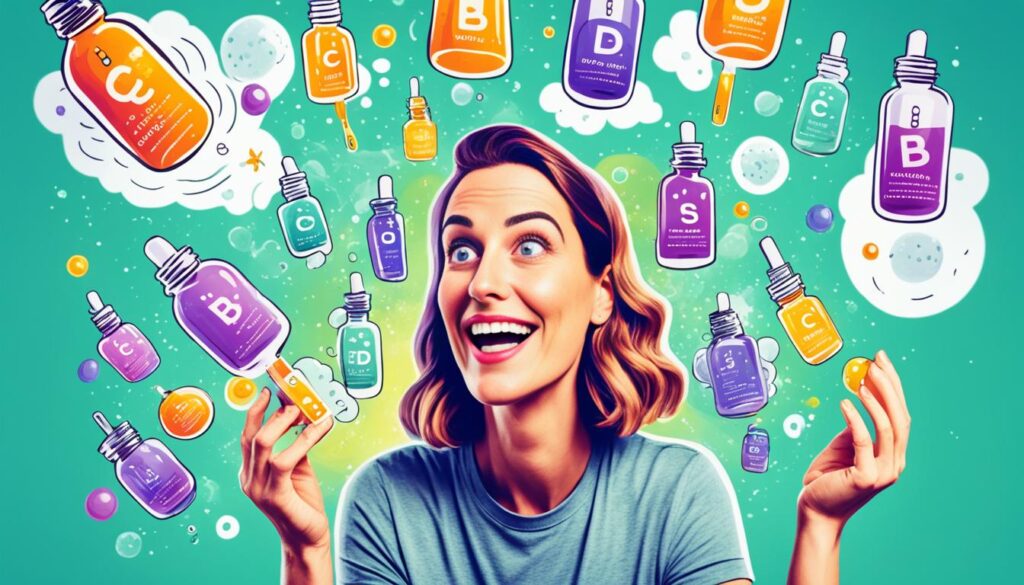
Key Takeaways:
- There are numerous myths and misconceptions about CBD that need to be addressed.
- CBD does not get you high and is non-psychoactive.
- Not all CBD products are created equal – quality matters.
- Scientific studies support the therapeutic benefits of CBD.
- CBD dosage and effectiveness vary from person to person.
Myth 1: CBD Will Get You High
Unlike what some think, CBD won’t get you high. It doesn’t cause a psychoactive effect like THC does. It’s a good choice for people wanting to use cannabis. They won’t feel any changes in their mind or how they see things.
Myth 2: All CBD Products Are Created Equal
CBD products vary a lot in quality. This difference comes from how they’re made, where they’re from, and what’s in them. To get the best CBD, pick products tested by other labs from well-known companies.
The way CBD is extracted matters. CO2 extraction is best because it’s clean and efficient. It doesn’t use bad chemicals. This method makes sure the CBD is high quality and keeps its good properties.
Look for CBD that’s tested by outside labs. Good CBD companies do this to prove their products are strong, safe, and as good as they say. These tests check for bad stuff like pesticides and metals.
Choosing lab-tested CBD means you’re getting a good product. Many companies will show these test results on their websites or on their packaging. So, you can see for yourself that it’s quality CBD.
“Not all CBD products are created equal. Choosing third-party lab-tested products from reputable companies ensures that you are getting high-quality CBD.”
Comparison of CBD Extraction Methods
| Extraction Method | Pros | Cons |
|---|---|---|
| CO2 Extraction | – Yields high-quality CBD – Efficient and precise – Free from solvents or chemicals |
– Expensive equipment – Requires expertise |
| Ethanol Extraction | – Cost-effective – Extracts a wide range of compounds |
– May leave residues or impurities |
| Hydrocarbon Extraction | – High yield – Extracts cannabinoids effectively |
– Risk of residual solvents – Potential for contamination |
To sum up, CBD products differ in quality. Choose products based on their extraction method and whether they have third-party lab testing. Doing this, you make sure you get the best out of CBD for your health.
Myth 3: CBD is a Marketing Scam
Some doubt the value of CBD, but research backs its health benefits. Studies highlight its anti-inflammatory effects, pain relief, and anxiety reduction. CBD is more than just marketing; it’s a research-supported compound with real health benefits.
“Research shows promising outcomes for CBD. The Journal of Experimental Medicine found it reduced animal inflammation and pain. The Journal of Clinical Psychology observed lower anxiety levels in humans.”
These studies underline the concrete benefits of CBD. They encourage more exploration into how CBD can improve health and wellness.
Anti-Inflammatory Properties
Research points to CBD’s potential to fight inflammation. This is crucial because inflammation is linked to many health problems. CBD offers a natural choice for those dealing with chronic pain, autoimmune diseases, or heart issues.
Pain Relief
CBD could change how we manage pain. It works with our body’s endocannabinoid system, affecting how we feel pain. This makes CBD a hopeful option for arthritis, migraines, and nerve pain sufferers.
Anxiety Reduction
CBD has been shown to help with anxiety. It may benefit those with generalized anxiety, social anxiety, or PTSD. CBD’s interaction with serotonin receptors in the brain might help bring calm and relaxation.
| Benefit | Scientific Evidence |
|---|---|
| Anti-Inflammatory Properties | The Journal of Experimental Medicine |
| Pain Relief | The Journal of Clinical Psychology |
| Anxiety Reduction | A study published in Neurotherapeutics |
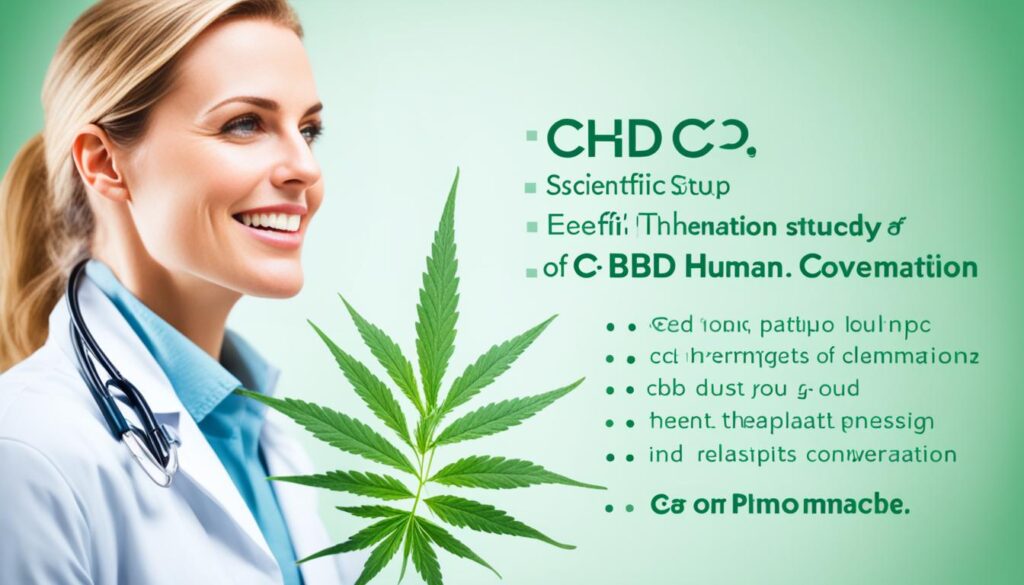
Scientific findings suggest CBD has therapeutic potential. Yet, more studies are needed to fully grasp how it works and its long-term impacts. Anyone considering CBD should first talk to a healthcare expert.
Myth 4: Higher Dosages Yield Better Results
Some people think that taking more CBD means better outcomes. But, this isn’t always correct. Everyone reacts differently to CBD because of things like their metabolism, weight, and specific health issues.
It’s wise to begin with a small amount of CBD and then slowly increase it. Watching how your symptoms change can help you find the perfect dose for you.
“Finding the right CBD dosage is a personal journey that requires patience and experimentation. What works for one person may not work for another, so it’s essential to listen to your body and adjust your dosage accordingly.” – Dr. Jane Thompson, CBD Researcher
Also, it’s key to remember that CBD works with the body’s endocannabinoid system. This system helps control things like sleep, mood, pain, and swelling. The way CBD helps can vary depending on how your endocannabinoid system functions.
By starting small and gradually increasing, you can see how CBD impacts you without too much at once. This way, you get a tailored and more effective way to use CBD.
Factors Affecting CBD Dosage:
- Metabolism: People with a quick metabolism might need more CBD to feel its effects. Those with a slow metabolism could need less.
- Weight: How much you weigh also plays a part in your CBD dosage. Bigger people might need more to get the same results as smaller ones.
- Specific Symptoms: What you’re treating with CBD matters too. Some health issues might need more CBD, while others do just fine with less.
Consulting with a Healthcare Professional
Talking to a healthcare pro is crucial before changing your CBD doses. They offer advice that fits your health history, ensuring CBD is both safe and effective for you.
Remember, CBD is a natural substance that works with your body in its own way. Recognizing how personal dose needs can be helps you use CBD wisely and gain its full benefits.
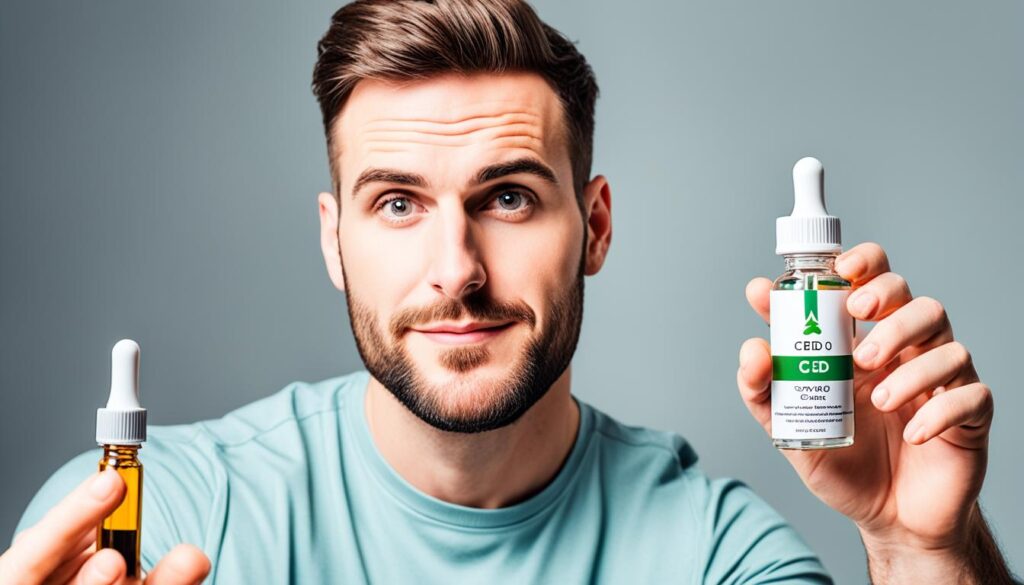
Myth 5: CBD is Completely Legal Everywhere
The legality of CBD isn’t the same everywhere. You need to know it varies by place and CBD source. CBD from hemp is mostly legal many places. But, CBD from marijuana might face tougher laws. Always check local and federal laws before buying CBD products.
States have their own rules for growing, selling, and sharing CBD. Some states allow all types of CBD. Others have strong rules or total bans on some CBD types. Knowing these rules helps you stay out of trouble and follow the law.
The CBD source matters a lot for its legal status. Hemp-based CBD has under 0.3% THC, which is why it’s more legally accepted. This low THC level means less chance of feeling “high”.
However, CBD from marijuana can have more THC. This means it faces different rules and limits. Always check where your CBD comes from. This helps ensure you’re following the law, both locally and federally.
It’s key for users to know about CBD laws. And, to keep up with any law changes. Knowing the rules helps you use CBD safely and legally.
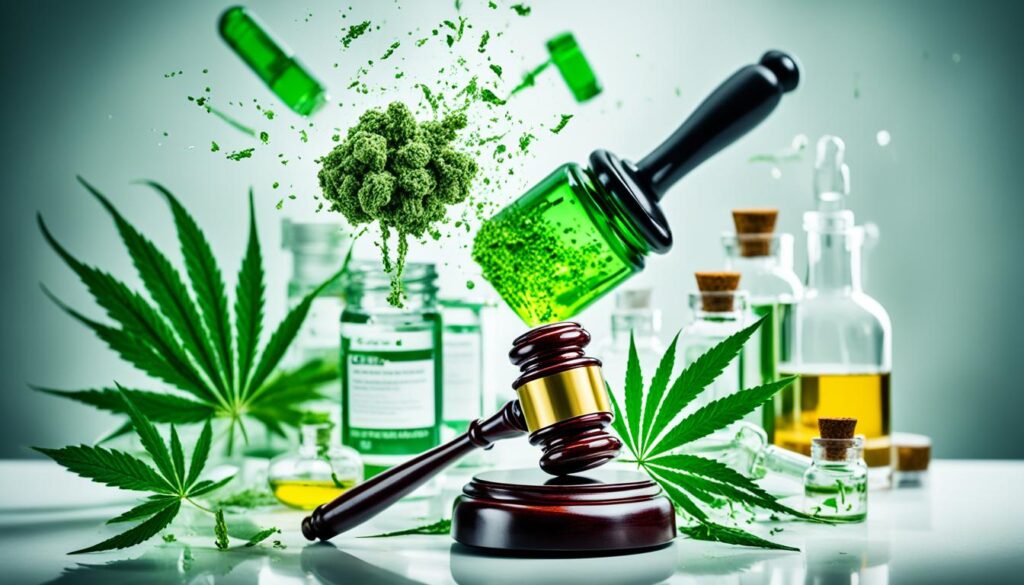
| Key Points | Considerations |
|---|---|
| Legalities vary | – Check local and federal laws – Understand state regulations |
| Hemp-derived CBD | – Generally legal – Contains |
| Marijuana-derived CBD | – Subject to stricter laws – Higher THC content |
| Stay informed | – Educate yourself on CBD legality – Be aware of changes in regulations |
Myth 6: CBD is Only Safe for Adults
Preliminary research suggests that CBD may also be safe for children and pets, particularly for conditions like epilepsy.
For children: CBD safety for children has been getting attention in studies. Studies suggest that CBD could help control seizures in children with epilepsy. However, talking to healthcare providers before giving CBD to children is very important. They can offer advice suited to the child’s health condition.
For pets: Like humans, pets might also benefit from CBD. Owners have noticed improvements in their pets’ anxiety, pain, and inflammation. Yet, consulting a veterinarian is critical before adding CBD to your pet’s routine. They can decide the best dosage and product for your pet.
Consulting with Healthcare Professionals
When thinking about CBD for kids or pets, talking to healthcare experts is key. They provide important advice and guidance based on their knowledge.
Healthcare providers can:
- Evaluate the medical history and conditions
- Look at the benefits and risks of CBD
- Recommend the right CBD dosages
- Check for any interactions with medicines
“The safety and effectiveness of CBD depend on factors like age, weight, and health history. Consulting healthcare professionals ensures CBD is used safely and responsibly for children and pets.”
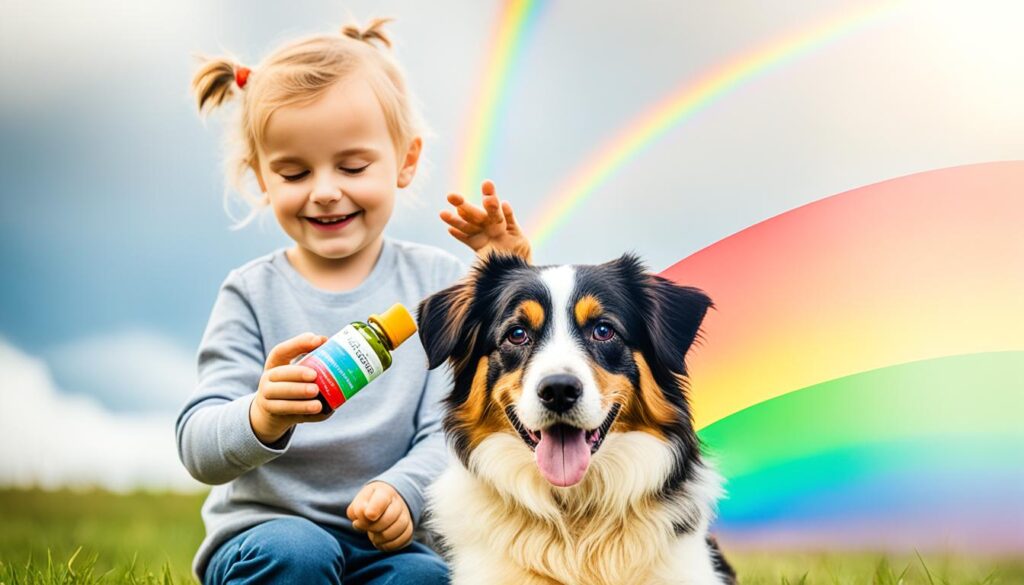
In conclusion, CBD holds promise for children and pets. But, it is crucial to speak with healthcare experts before starting a CBD plan. Their advice can help decide the proper dosage and protect the safety of your loved ones.
Myth 7: CBD has No Side Effects
While CBD is mostly safe, it can cause side effects for some folks. Knowing these effects helps you make better choices. Common side effects include:
Dry Mouth:
CBD often leads to dry mouth or cottonmouth. You’ll feel thirsty. Drinking water helps with this issue.
Diarrhea:
CBD might upset your stomach, causing diarrhea. Lowering the dose or stopping may help. Talk to a doctor for advice.
Changes in Appetite or Weight:
It can also change your hunger levels or weight. Watch your body’s reaction and adjust your CBD use to stay healthy.
Not everyone gets these side effects from CBD. Talk to your healthcare provider before trying CBD. They can offer safety advice.
Being informed about CBD’s side effects lets you use it wisely. This ensures it fits your personal health goals.

**Keywords: CBD side effects, CBD safety, CBD dry mouth, CBD diarrhea, CBD changes in appetite.
CBD as a Complementary Wellness Tool
CBD is a supportive wellness tool, not a replacement for traditional medicine. It helps with symptoms of various health issues like chronic pain, anxiety, and trouble sleeping.
When added to a full treatment plan, CBD can improve overall health. It offers relief from hard symptoms because of its natural qualities. This makes it a good choice for those looking into alternative treatments.
It’s critical to talk to health professionals before using CBD. They can create a care plan that includes CBD the right way for you.
Studies show CBD’s potential in easing symptoms and boosting life quality. Getting advice from health experts ensures wise decisions about including CBD in your health routine.
CBD is a tool for wellness with many benefits, but not a substitute for medical care. Always get advice from experts and work with them for the best care.
Explore the benefits of CBD as a supplementary wellness tool for a better health journey.
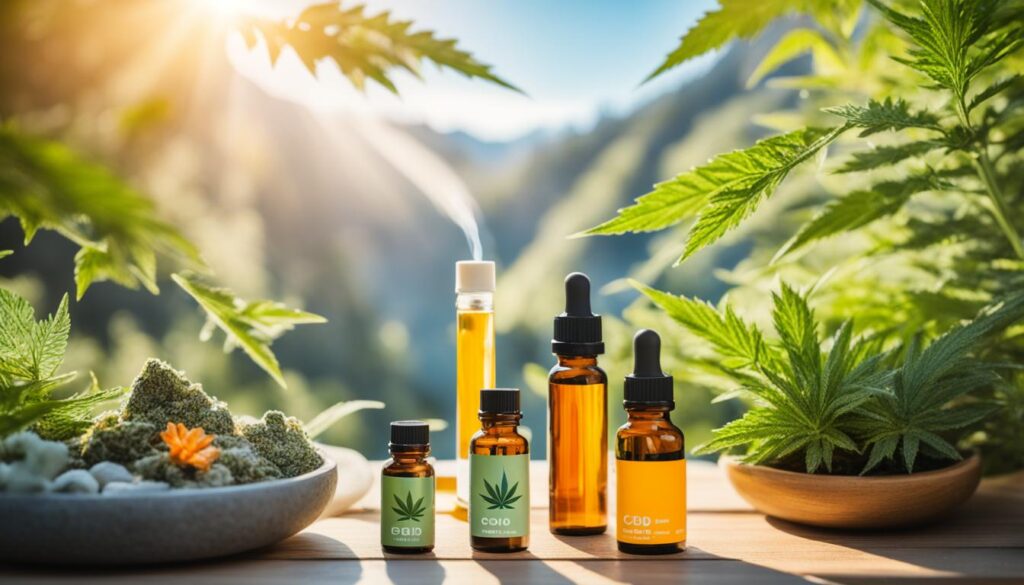
CBD for Pets: Dispelling the Myth
Did you know CBD can help your furry friends too? It’s good for reducing their anxiety, pain, and swelling. Using CBD can be a natural and safe way to boost their health. But, it’s key to know what’s true and what’s not about CBD for pets.
CBD products for pets are made with their needs in mind. You can find them as oils, treats, or capsules. This makes it easy for pet owners to give to them. These products make sure pets get the right amount of CBD.
It’s important to talk to a vet before giving CBD to your pet. A vet can tell you which CBD products and how much to use. They know what’s best to keep your pets safe and healthy when using CBD.
| Benefits of CBD for Pets | Common CBD Pet Products |
|---|---|
|
|
Many are studying CBD for animals to understand its benefits better. Pet owners share positive stories about using CBD. Yet, each pet is different, and how they react to CBD can vary. Always watch how your pet responds and keep in touch with your vet.
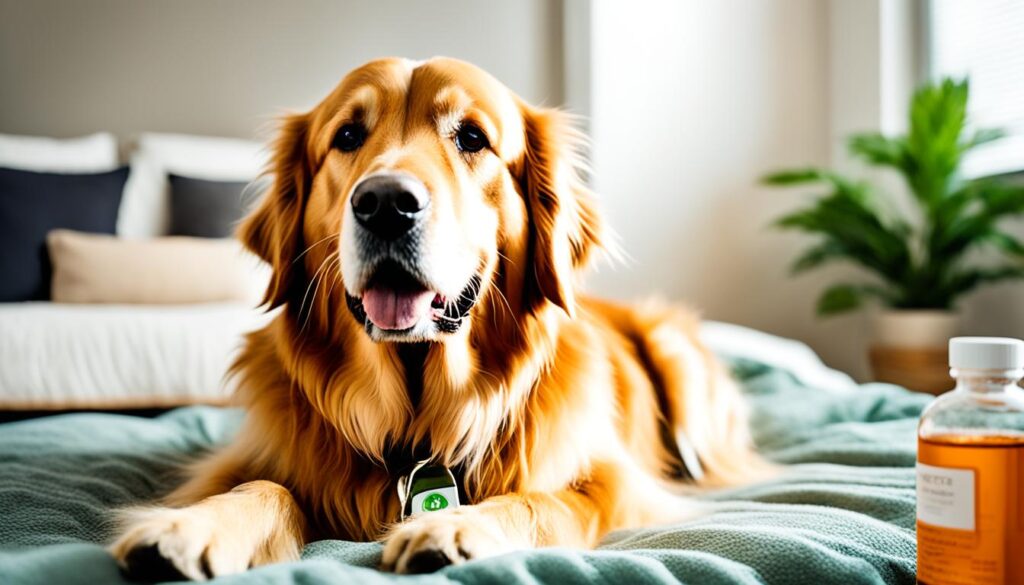
Quality is key with CBD for pets. Look for trusted brands focused on quality and clarity. Pick products tested by others to make sure they’re pure and strong. This way, you know you’re giving your pets top-notch CBD products.
Understanding the truth about CBD for pets and getting expert advice is wise. CBD could help your pets feel better and more joyful. By choosing the right approach, you and your cherished pets can enjoy better days together.
The Importance of Choosing High-Quality CBD Products
Not all CBD products are the same. The quality and effectiveness vary greatly across different brands. It’s vital to choose high-quality CBD products for the best results for your health.
Ensuring CBD Product Quality
Quality is key when buying CBD. Choose products from well-known, reputable companies that value transparency. This helps ensure you get pure, effective products.
The extraction method matters a lot for quality. Safe, efficient methods like CO2 extraction are best. They remove contaminants and keep the good stuff in CBD.
Third-party lab testing is also crucial. It shows the CBD’s purity and what’s in it. Always check these results to ensure you’re buying top-quality CBD.
Selecting the Right CBD Product Formulation
Choosing the right CBD form is as important as quality. Different forms have different benefits. Think about what you need from CBD.
CBD oil tinctures are easy to use and dose. CBD capsules and edibles are handy for daily use.
For targeting specific areas, CBD creams and balms are great. They’re applied directly to the skin.
CBD vapes work fast and offer quick relief. They’re good for those who need immediate effects.
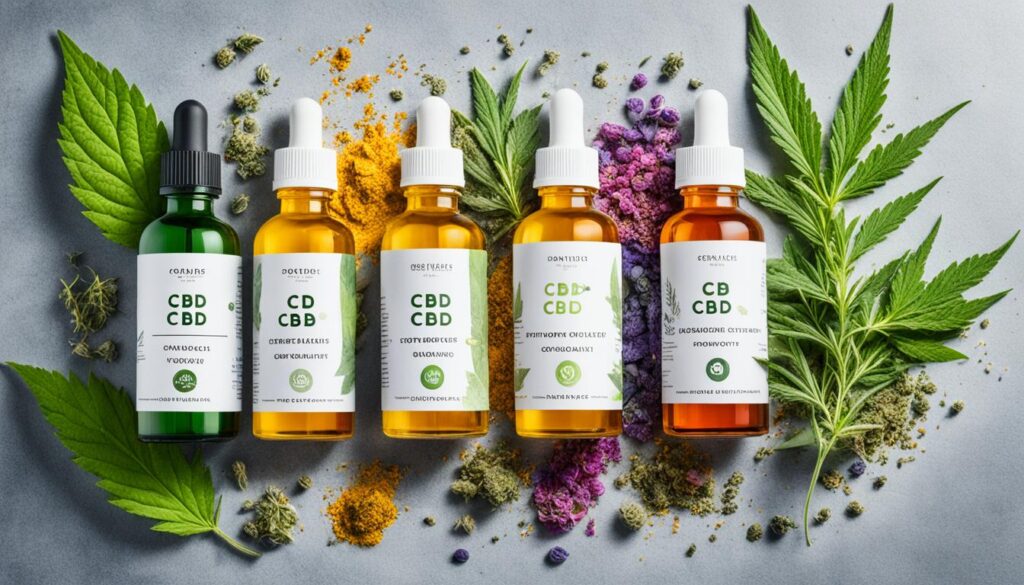
| CBD Product Formulation | Benefits |
|---|---|
| CBD Oil Tinctures | Precise dosing, easy administration |
| CBD Capsules and Edibles | Convenient ingestion |
| CBD Topicals | Localized relief for sore muscles and inflammation |
| CBD Vape Products | Fast-acting, immediate relief |
Choosing the right CBD form for your needs boosts its benefits. It enhances your daily life with CBD.
Focus on quality and the right form when using CBD. High-quality products from trusted companies and matching your needs make all the difference. This unlocks CBD’s potential benefits for your wellness.
Conclusion: Embracing CBD with Knowledge
Breaking down myths and learning about CBD helps people make smart choices for their health. Knowing the benefits of CBD can greatly improve your life. It’s vital to get the facts straight.
With the right information, you can confidently explore CBD’s world. You’ll understand its uses and limits. This knowledge lets you try CBD oil, edibles, or creams and find what works for you.
Adding CBD to your wellness plan could help with pain, anxiety, and sleep. But remember, CBD isn’t the same for everyone. You might need to try different amounts and products.
Talk to doctors and use CBD wisely to boost your health. It’s no miracle, yet CBD is a strong addition to wellness routines.
FAQ
Myth 1: Will CBD Get You High?
No, CBD won’t make you feel “high” like THC does. It doesn’t change your mind or perception because it’s non-psychoactive.
Myth 2: Are All CBD Products Created Equal?
Not all CBD products are the same. The way they’re made, where they come from, and other ingredients affect their quality. Always pick products that have been checked by third parties and come from trusted companies.
Myth 3: Is CBD a Marketing Scam?
CBD isn’t a scam. Research shows it can help with pain, reduce inflammation, and lower anxiety. These benefits are backed by science, making CBD a genuine aid for various conditions.
Myth 4: Will Higher Dosages of CBD Yield Better Results?
Taking more CBD isn’t always better. What works best can depend on your body, how much you weigh, and what you’re treating. Start with a small dose and adjust as needed, paying attention to how it affects your symptoms.
Myth 5: Is CBD Completely Legal Everywhere?
CBD’s legality can change based on where it’s from and where you are. Hemp-derived CBD is usually legal in many places. But, marijuana-derived CBD might be more restricted. Always check the laws where you live before buying CBD.
Myth 6: Is CBD Only Safe for Adults?
CBD may also be ok for kids and pets for certain conditions like epilepsy. But, talking to a healthcare provider first is key.
Myth 7: Does CBD Have No Side Effects?
CBD is safe for most, but some might experience side effects like dry mouth or changes in appetite. If you’re thinking about trying CBD, talk to a doctor first.
Is CBD a Replacement for Conventional Medicine?
CBD isn’t a substitute for traditional medicine. Instead, it can help ease symptoms of things like pain, anxiety, and sleep issues. Before taking CBD, it’s wise to discuss it with a healthcare professional.
Can CBD be Used for Pets?
Yes, pets can benefit from CBD too. It can help lessen their anxiety, pain, and inflammation. But, remember to consult with a vet before giving CBD to your pet.
Why is Choosing High-Quality CBD Products Important?
Choosing the right CBD products matters a lot for their effectiveness. Go for reputable brands that test their products independently. This ensures you get a pure and potent product that meets your needs.
